Freedom to Protest Is Under Attack – Why It Matters for Everyone

When states suppress public protests, they don’t just target activists, they erode the rights of all citizens. The latest crackdowns in Hungary, Turkey, and beyond show why defending freedom of assembly is more urgent than ever.
On 8 March, people took to the streets to mark International Women’s Day, but their right to march was actively suppressed in many places. From Kazakhstan to Turkey and Azerbaijan, authorities used intimidation, force, and legal threats to prevent women from gathering, exposing a broader pattern of restrictions on civil society. Meanwhile, in Hungary, the government has escalated its efforts to suppress freedom of assembly, passing a law that explicitly bans Pride marches and introduces surveillance measures to deter participation.
Crackdowns on feminist and LGBTI protests
Ahead of Women’s Day, Kazakhstan authorities detained LBT activists from Feminita, using penal and administrative tactics to suppress their activism. In Turkey, nearly 200 people were detained in Istanbul alone, with police blocking demonstrations across multiple cities on the 8th. Among those detained was a trans woman, underscoring how trans activists are often specifically targeted. In Azerbaijan, feminist activist Rauf Heydarov was sentenced to 30 days of detention after attempting to display a poster on 8 March, with fabricated charges used to justify their arrest. These cases illustrate how states use arbitrary detentions and legal mechanisms to intimidate activists and restrict their right to assemble and protest.
Hungary: From threats to an outright ban on Pride
In Hungary, restrictions on freedom of assembly have intensified dramatically. What started as a “child protection” law—banning the “depiction or promotion” of homosexuality to minors and widely condemned by EU leaders, the European Commission, and the Council of Europe as violating international human rights standards—has now escalated into a nationwide ban on Pride marches. The new law not only criminalises these events but also permits the use of facial recognition technology to track and penalise participants. Despite this, the Budapest Pride organisers remain committed to marching, demonstrating the resilience of the movement in the face of increasing authoritarianism.
A key indicator of democratic health
These events in Hungary, Turkey, Kazakhstan, and Azerbaijan are not isolated incidents. They reflect a broader trend in which governments seek to silence peaceful and legitimate dissent by restricting public demonstrations, targeting women’s rights and LGBTI activists, and using legal measures to suppress fundamental rights. The ability to protest is a key indicator of democratic health. When states criminalise peaceful assembly, they erode not just rights for LGBTI people and women, but the broader foundation of civil liberties for all.
As these threats grow, the international response must be clear. Governments, the EU, and international institutions must hold states accountable for these violations and stand in firm defence of the right to protest. Freedom of assembly is not just an LGBTI or feminist issue; it is central to human rights and democracy. When one group’s right to gather is restricted, the ability of all people to organise and demand change is at risk.
The human right to assemble and protest must be protected, defended, and upheld.
Hungary’s Parliament Passes Law Banning Pride
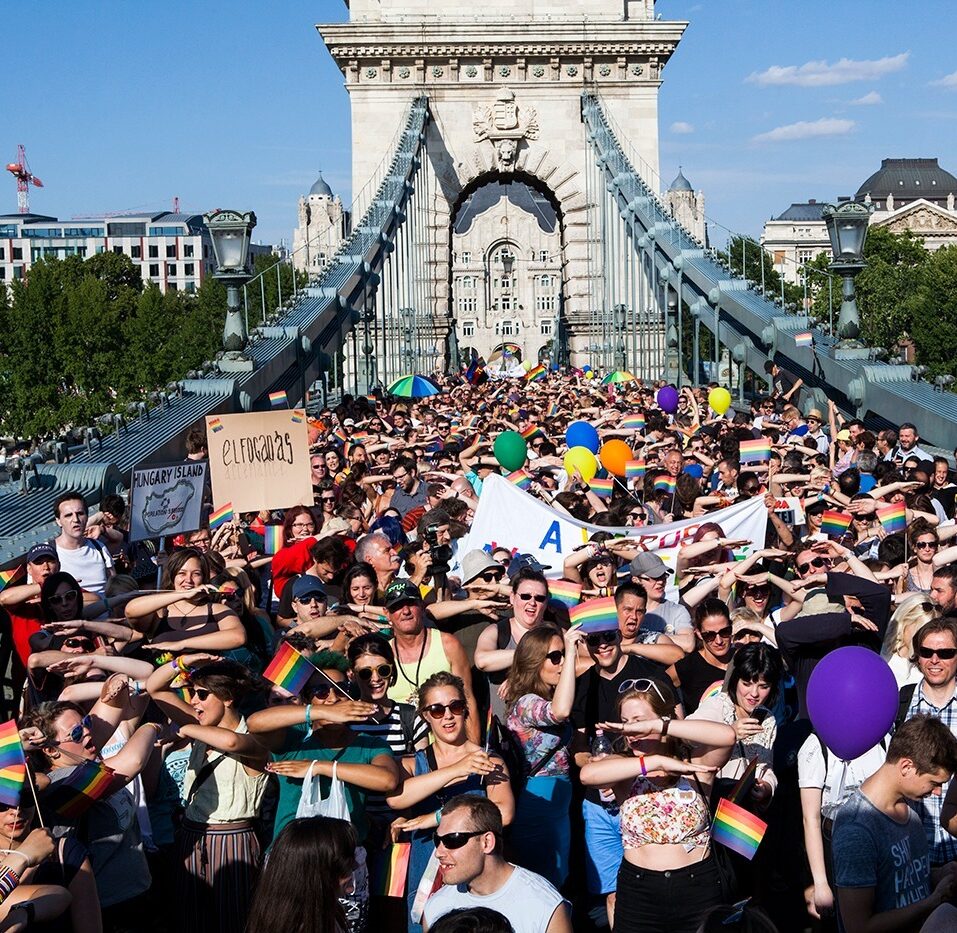
In an attack on freedom of assembly, Hungary’s Parliament has passed a controversial law criminalising Pride marches and allowing the use of facial recognition technology to target participants.
In a deeply troubling development, Hungary’s Parliament has passed a law banning Pride marches across the country. The law was fast-tracked through Parliament in just one day, with no consultation or debate, marking a significant erosion of freedom of assembly and human rights in Hungary.
The newly passed legislation expands Hungary’s already controversial “child protection” law, which prohibits the “depiction or promotion” of homosexuality to minors. This law reinforces harmful and outdated stereotypes about LGBTI individuals and their rights.It takes this one step further by criminalising Pride events, both for organisers and participants, while also granting authorities the power to use facial recognition technology to track, identify, and fine attendees. This measure has been condemned as a significant infringement on privacy and personal freedoms.
According to ILGA-Europe’s Executive Director, Chaber: “This new law is more than just a ban on a single event. It represents an assault on the fundamental freedoms of expression, assembly, and protest, and an attempt to silence the LGBTI community in Hungary. It is an effort to erase LGBTI people from public life and restrict their ability to peacefully protest. More restrictions on the rights of other people will follow.”
The government’s actions have sparked widespread protests. Yesterday, thousands gathered outside Parliament, chanting anti-government slogans. The organisers of Budapest Pride also remain defiant. This year marks the 30th anniversary of the Budapest Pride march, and they are committed to marching on June 28, 2025.
“The international community must rally behind the people of Hungary, demanding the protection of their right to peacefully assemble and protest,” Chaber added. “As Pride marches continue to grow and oppose authoritarianism worldwide, the fight for LGBTI rights becomes even more vital in the broader struggle for democracy and human dignity.”
Statement: Orbán’s threat to ban LGBTI Pride marks a dangerous step toward silencing dissent
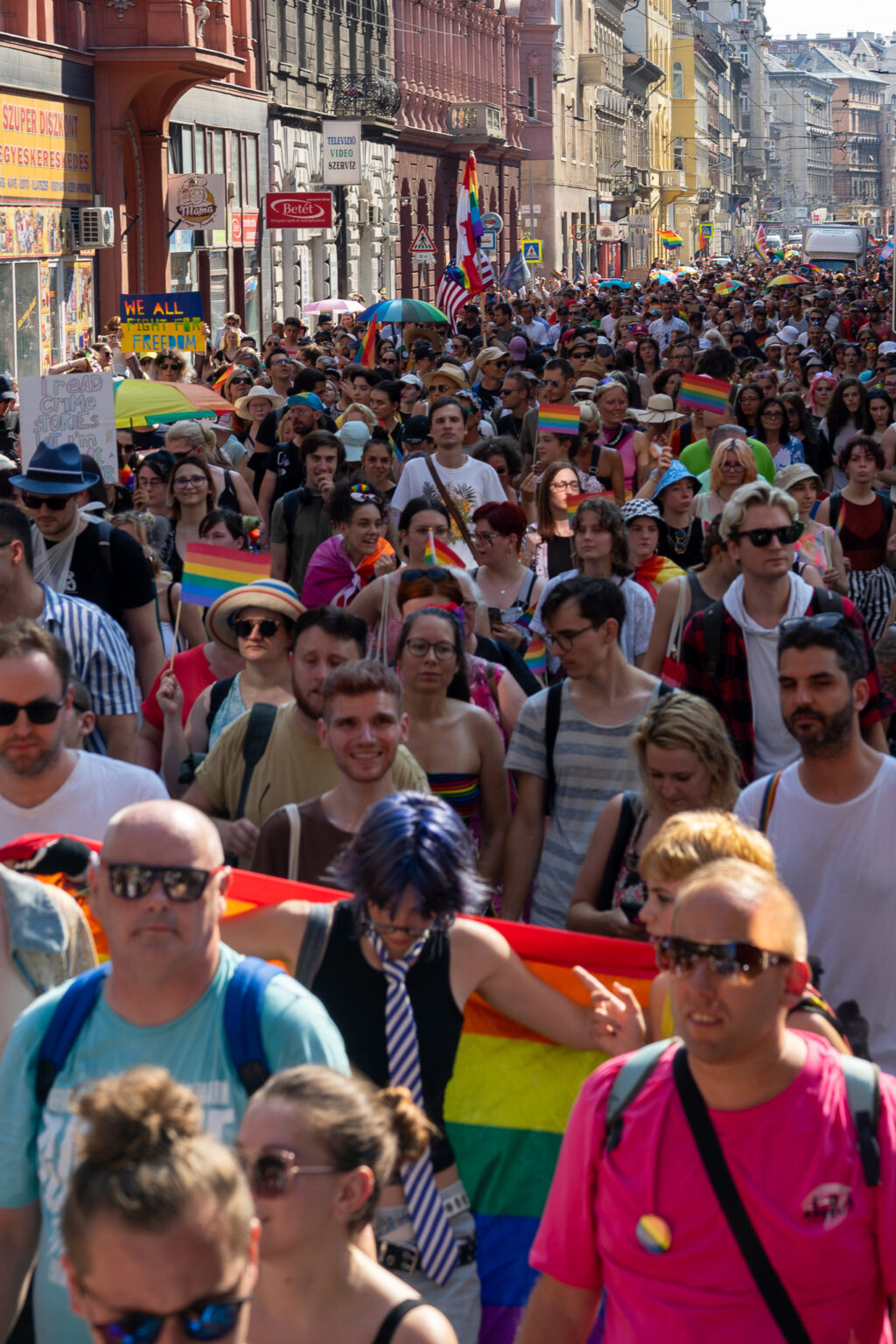
Hungarian Prime Minister Viktor Orbán’s threat to ban the 2025 Budapest Pride march has sparked outrage, with concerns over restrictions linked to the country’s anti-LGBTI law. ILGA-Europe stand in solidarity with the organisers of Budapest Pride, and assert the Hungarian people’s right to peaceful protest.
On 22 February, the Hungarian Prime Minister, Viktor Orbán, delivered a speech in which he threatened to ban Budapest Pride. During his State of the Nation address, Orbán said: “I advise the Pride organisers that they should not bother preparing for this year’s march. It would be a waste of time and money”.
While no legislation has yet been tabled to outright ban the 2025 Pride march, the government has referred to restrictions on its location, justifying this on the basis of the Hungarian anti-LGBTI law adopted in 2021, which bans promotion or portrayal of so-called “divergence from self-identity corresponding to sex at birth, sex change or homosexuality” to minors. This effectively bans depictions or “promotion” of LGBTI identities in the public space or anywhere where minors could be present or see LGBTI related content.
The European Commission has taken Hungary to court over this aforementioned law, and any restrictions or bans on Pride would also contravene laws related to freedom of assembly and freedom of expression, protected in both international law1 and Hungary’s own Constitution2.
Last year, 35,000 people marched, making Budapest Pride the largest recurring civil rights demonstration in the country. Activists anticipate that this year’s march will be Hungary’s largest Pride ever. Many Hungarians who have never attended any Pride marches are publicly declaring their intention to join because the government is threatening a ban.
Banning Pride in Budapest would eliminate a crucial platform for Hungarians to demand that their government listen to its people and uphold democratic values. It would mark a dangerous step toward restricting the right to protest and silencing dissent.
We affirm the value and importance of Pride as a peaceful gathering to assert the equal human rights of LGBTI people, in the context of demanding equal human rights for all. We decry any attempt to stamp out Pride as an attack on everyone’s right to freedom of assembly. We stand in solidarity with Budapest Pride, who will march on June 28, and are determined to fight all obstacles laid in front of them. We urge the authorities in Hungary and every democratic state to respect and protect the right to peaceful assembly. A society that upholds human rights for all is a stronger, more just society for everyone.
The Turkish LGBTI+ community resists bans on Pride events again this year, amid increased repression from the Turkish government
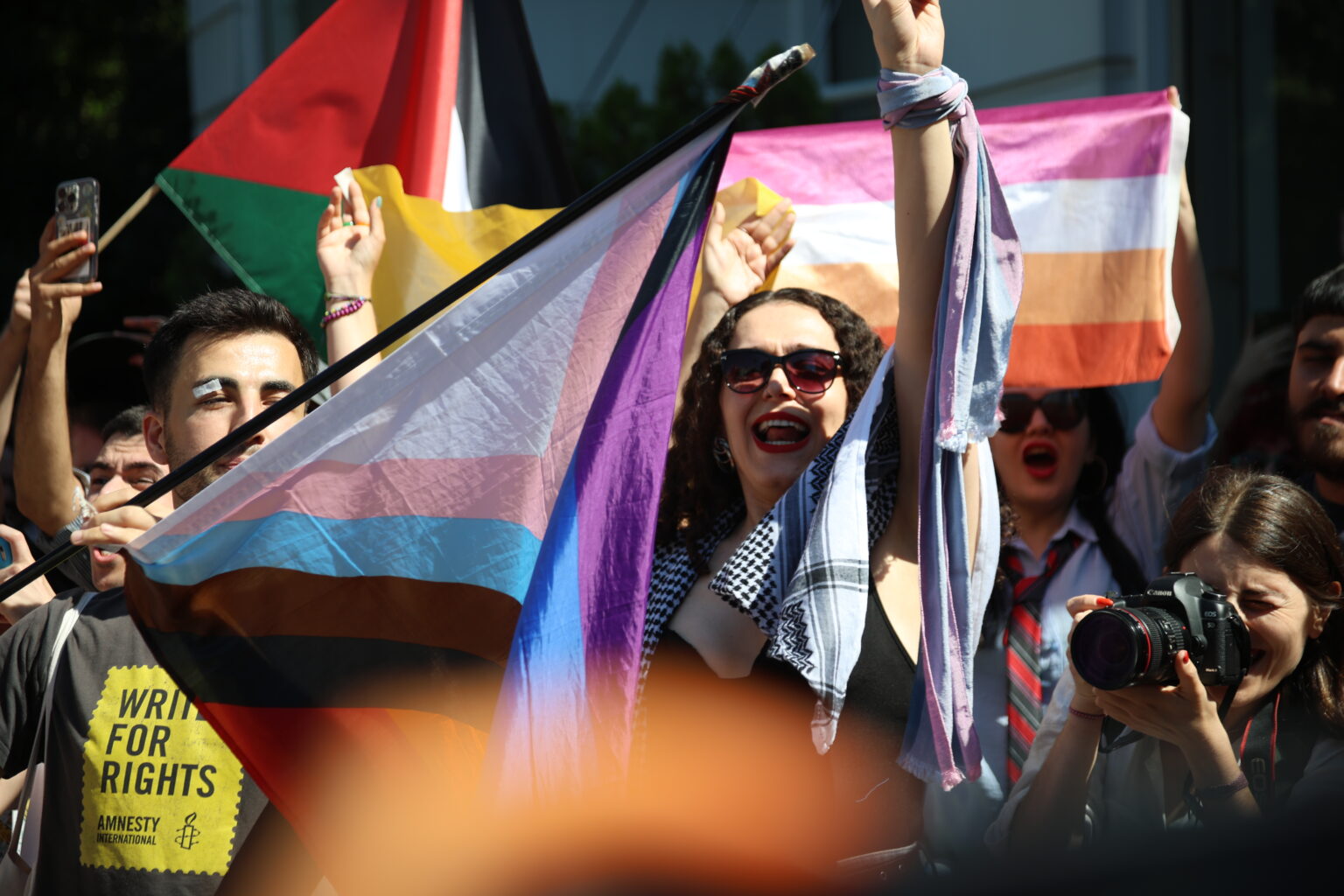
Amid increased repression from the government, the Turkish LGBTI+ community courageously and creatively resists bans on Pride events again this year
This year’s Pride season in Turkey saw continued bans on LGBTI+ themed events, as well as police repression, as the government continues to disregard the fundamental right to freedom of assembly and expression for LGBTI+ people. LGBTI+ activists across the country stepped up their tactics to avoid police repression, bans and arrests as much as possible.
METU, 31 May
On the METU student campus, Pride took place without intervention, as organisers moved the start time from 18:00 to noon.

Eskişehir, 9 June
Ten LGBTI+ activists were detained and subjected to torture. For the first time since 2015, four of the detained activists were referred to court with a demand for arrest. Later, all four of them were released.

Ankara, 12 June
The Ankara Pride committee, in response to police barricades and water cannons set up in many parts of the city, organised the march on another route. The police were therefore unable to intervene and no one was detained.

Trans Pride Istanbul, 23 June
The Istanbul governor’s office blocked metro stations in anticipation of Trans Pride, and hundreds of police officers were sent to the Beyoğlu, Şişli, and Beşiktaş districts, setting up checkpoints, barricades, and water cannons to blockade many roads. As a result, organisers decided not to hold a mass march; instead, they hung trans flags in different public locations. Two people were detained while sitting inside a café.


Izmir, 29 June
In İzmir the Pride march was held in Bornova one day before the official march was called to go ahead. This change in timing prevented any interventions.

Istanbul, 30 June
During Pride week in Istanbul, two events, one in Şişli and one in Kadıköy, were banned by district governors. The Istanbul Governorship issued a ban on Taksim and Istiklal Street in the early hours of the day of the Istanbul Pride march and described the Istanbul LGBTI+ Pride Week Committee as “various illegal groups”. The police were waiting at Taksim, Beyoğlu but the activists held the march instead at Bağdat Street of Kadıköy (on the Anatolian side) which was the first Istanbul Pride march on the Anatolian side of the city. Activists made a press statement and marched for approximately ten minutes before the police caught up and dispersed the crowd. Eleven people were arrested after the march ended, three of which were minors, who were handcuffed behind their backs in violation of the Child Protection Law. All were released after approximately eight hours.





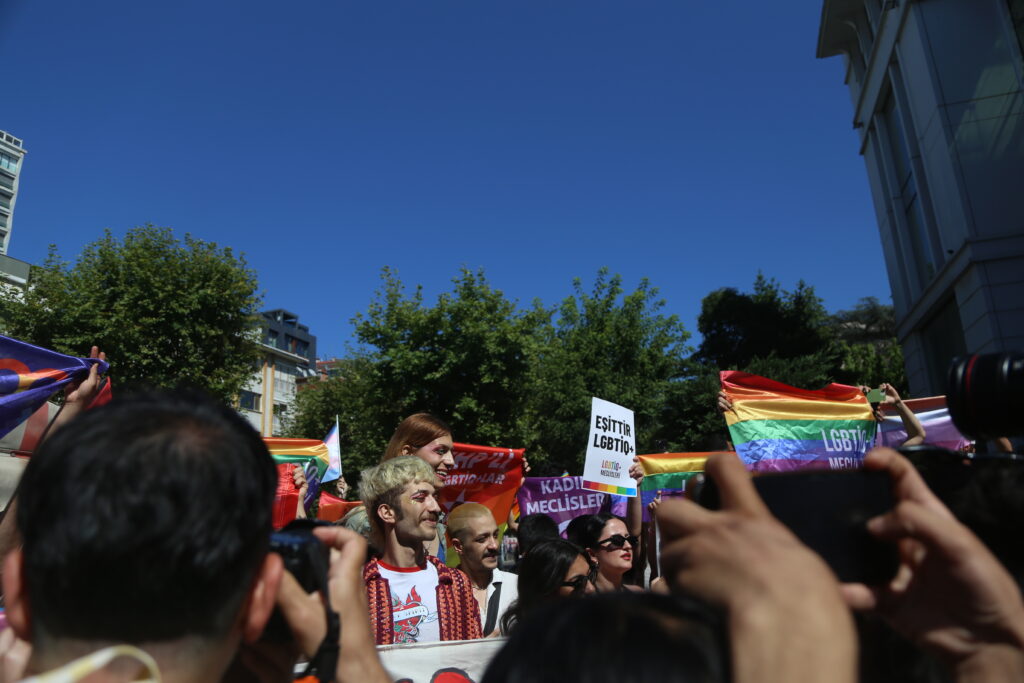

Antalya, 1-15 July
All protests and events were banned by the governorship for 15 days, from 1-15 July, when Pride events were due to take place. The Pride march went ahead on July 14 and it was attacked by police, who arrested four participants.

Resilience and Creativity of Pride Organisers
It is clear that following the national elections of May 2023, and the municipal elections of March 2024, both marred by significant anti-LGBTI+ rhetoric, smear campaigns, and misinformation, institutionalisation of anti-LGBTI+ actions is on the rise. The international community must not be fooled by the reduction in arrests and violence during this year’s Pride season – much of this was avoided by the creativity and resilience of Pride organisers. Meanwhile hatred against LGBTI+ people from government and institutions is still coordinated and becoming more entrenched in policy.
Alarming developments in 2024
While Turkey continues to disregard its obligations under its own constitution and international treaties to which it is party to ensure the right of freedom of assembly and expression for all, it is also stepping up institutional targeting of the LGBTI+ community. Anti-LGBTI+ rhetoric by key political figures continues, related to more institutional contexts.
In June, the Minister of Family and Social Services Mahinur Göktaş presented the new 2024-2028 Action Plan for the Protection and Strengthening of the Family. This Action Plan contains measures to combat “deviant harmful ideology” of LGBTI+ people. The Minister stated that “Family structure is being destroyed by impositions carried out on a global scale” and President Erdogan added that “the imposition of LGBT has become a tool of tyranny, oppression and the corruption of society that even surpasses fascism”.
Misinformation is being institutionally supported, as one of the actions of the plan is that “documentary/program studies will be carried out on the negative effects of harmful trends and habits that threaten families on human nature and rights, family structure and society, especially on children, and existing broadcasts will be translated into Turkish.”
As has been seen with the government’s support to the Big Family Platform, LGBTI+ people are wrongfully framed as a “threat to the family”. The Speaker of the Grand National Assembly of Turkey, Numan Kurtulmuş, during his meeting with the Big Family Platform, an organisation organising anti-LGBTI+ hate rallies and calling for the closure of LGBTI+ organisations, targeted LGBTI+ individuals by referring to them as “deviant movements.”
The Ministry of Foreign Affairs is tasked under the Action Plan with creating connections with actors with similar agendas abroad, which implies further institutionalisation of the anti-gender movement.
The Presidency of Religious Affairs has also released its 2024-2028 Action Plan, which pledges over two million lira to fight against the LGBTI+ movement. The plan’s states that “homosexuality and its derivatives” are deviant and socio-cultural threats at the individual, family and societal level. Included in the actions, the General Directorate of Religious Publications is expected to prepare 40 publications similar to the “Family Magazine” until the end of 2028 “to protect the family against deviant ideologies that threaten the family”. “Family Magazine” is published by the Directorate General of Religious Publications and targets LGBTI+ people.
As we raise these alarming developments, we continue to call on international institutions to raise these issues in all relevant meetings with Turkish authorities, and for donors to further support Turkish LGBTI+ civil society in the face of the increased state-led repression.
Remarkable and resilient Prides across Europe
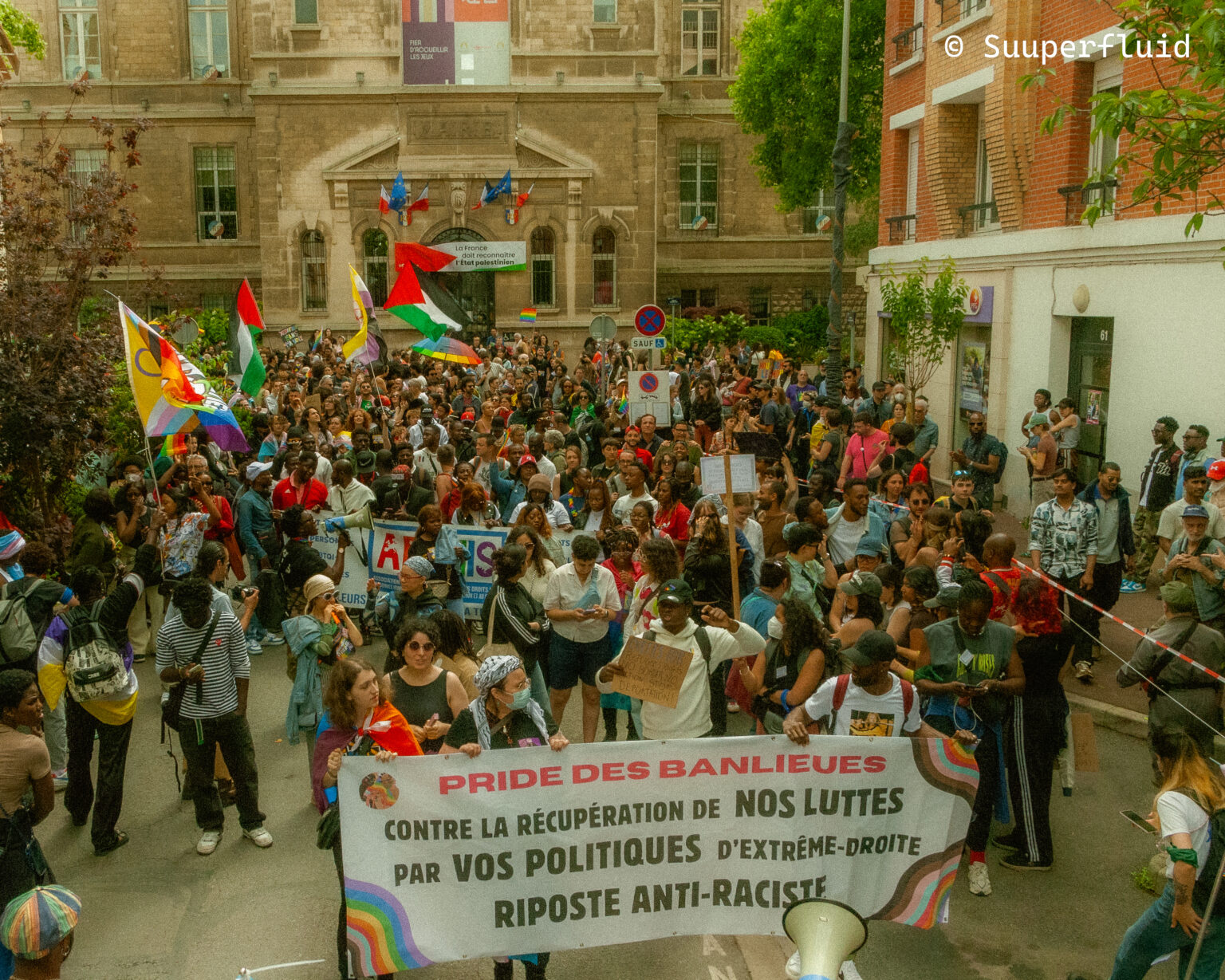
Amid political turmoil, war, social issues and cultural changes, Pride celebrations in Europe continue to demonstrate the resilience and determination of LGBTI communities
Today, on the eve of EuroPride in Thessaloniki, we are highlighting a number of significant Pride events on the continent, and one clear message shines through: LGBTI people are persisting in asserting their right to assemble and freely express themselves, thereby firmly establishing their presence in society. Pride events not only celebrate identity and diversity but also serve as critical platforms for political engagement. They amplify the voices of LGBTI people across Europe, who continue to push boundaries and demand their rightful place in society. Here are just a few of the thousands that have and will happen across Europe this year, in places where challenges are acute.
Kyiv Pride, Ukraine
Kyiv Pride 2024, on June 16, took place amidst challenging circumstances, reflecting the determination of Ukraine’s LGBTI community. Despite facing a cap on participation and heightened security measures, over 500 people marched through the streets of the capital to advocate for partnership recognition and protections against hate crimes. The event occurred against a backdrop of ongoing war, underscoring the urgent need for legislative reforms to safeguard LGBTI rights in Ukraine. Despite tensions and counter-protests, Kyiv Pride 2024 stood as a powerful assertion of the community’s right to freedom of assembly and expression.
“We took only a few steps, we made this painful compromise for the sake of safety and in order to revive the tradition and make a powerful and open Kyiv Pride March next year.” – Anna Sharygina, lead organiser of KyivPride.
La Pride des Banlieues (The Pride of the Suburbs), La Courneuve, France
La Pride des Banlieues happened in La Courneuve on June 22, representing LGBTI people from French working-class areas, many of whom are racialised. The group has been organising the Pride for several years in Saint-Denis. This year, however, the municipalities denied permission to march in Saint-Denis because of preparations for the Olympic Games in the city. Due to a last-minute relocation from its original venue and losing support from a municipality that had previously been an ally of past La Pride des Banlieues marches, the event took place in another suburb of Paris with less resources for security and less time to figure out new support infrastructure.
It was important that La Pride des Banlieues took place this year as the far-right opposition has been gaining more traction in France, getting more intense in their actions against LGBTI communities, with racialised LGBTI communities particularly facing multiple situations of discrimination and harassment. In their political message at La Pride des Banlieues, the organisers and their constituents condemned rising hate speech, discriminatory immigration policies, and institutional racism, aiming to resist far-right co-optation and mobilise solidarity against oppression of ethnic minorities and LGBTI communities in the suburbs.
“The fight against the far-right cannot be reduced to a universal fight, we must recognise the multiple and interconnected realities of oppression.” – La Pride des Banlieues organisers.
Trans Pride Istanbul, Turkey
Trans Pride Istanbul on Sunday June 23 was marked by decentralised actions across the city. Under the theme “Perpetrator State,” participants asserted trans visibility and existence, refusing to be silenced despite bans and oppression. Rather than a centralised march, activists mounted a number of smaller, unannounced activities like hanging trans flags, projecting messages across city landmarks and reading of a statement in front of Pride attendees. The event unfolded amidst stringent security measures, including metro station closures and a heavy police presence. Two people were detained and released after. This year’s Trans Pride Istanbul not only showcased solidarity and determination among Turkey’s trans community but also highlighted ongoing issues of discrimination and the fight for visibility and rights, echoing their message that the state is accountable for perpetuating violence and systemic injustices against trans people.
“We are trans people who are made the targets of violent and discriminatory policies at any chance given just because of our trans identities.” – Trans Pride Istanbul organisers
Looking Ahead
As we approach the end of June, two more significant events lie ahead this weekend.
Bucharest Pride, Romania
More than 25,000 people are expected to take to the streets of Bucharest on Saturday, June 29 to celebrate diversity and claim the rights of the LGBTI community at a crucial moment in Romania. Both presidential and general elections are approaching, and 20% of Romanian MEPs elected to the European Parliament were from the far right, with two of them using anti-LGBTI hate speech. Additionally, a new referendum regarding the definition of families is being pushed by the government opposition.
Pride in Bucharest will address the urgent need for legal recognition and protection of all same-sex families, continuing the push for the immediate implementation of the 2018 Coman case. In the case, the European Court of Justice affirmed residency rights in EU countries (that do not recognise same-sex unions) for the spouse of an EU citizen exercising their right to freedom of movement. Romania has yet to implement the verdict by granting Andrew Coman’s husband a residence permit, and a draft law has been adopted that would stop Romania from implementing it.
ILGA-Europe will be in Bucharest this coming October for their Annual Conference, working with local hosts ACCEPT and MozaiQ, recognizing this as a crucial moment for LGBTI human rights in Romania.
Istanbul Pride, Turkey
Istanbul Pride will take place on Sunday, June 30. Given the government and police response to Pride in the country over the past years, we will be closely monitoring what is happening. One thing we do know is that the LGBTI community in Istanbul and their allies will assert their human right to freedom of assembly and freedom of expression by attending Pride, with pride, resilience and courage. We will be reporting on Istanbul in this year’s instalment of our Turkey Pride monitoring blog over the coming weeks, as we learn from activists and organisers how officials are responding to Prides across the country. You can read our Turkey Pride monitoring blog from 2023 here.
EuroPride host, Malta is No’1 on our Rainbow Map, but it’s not all a pretty picture
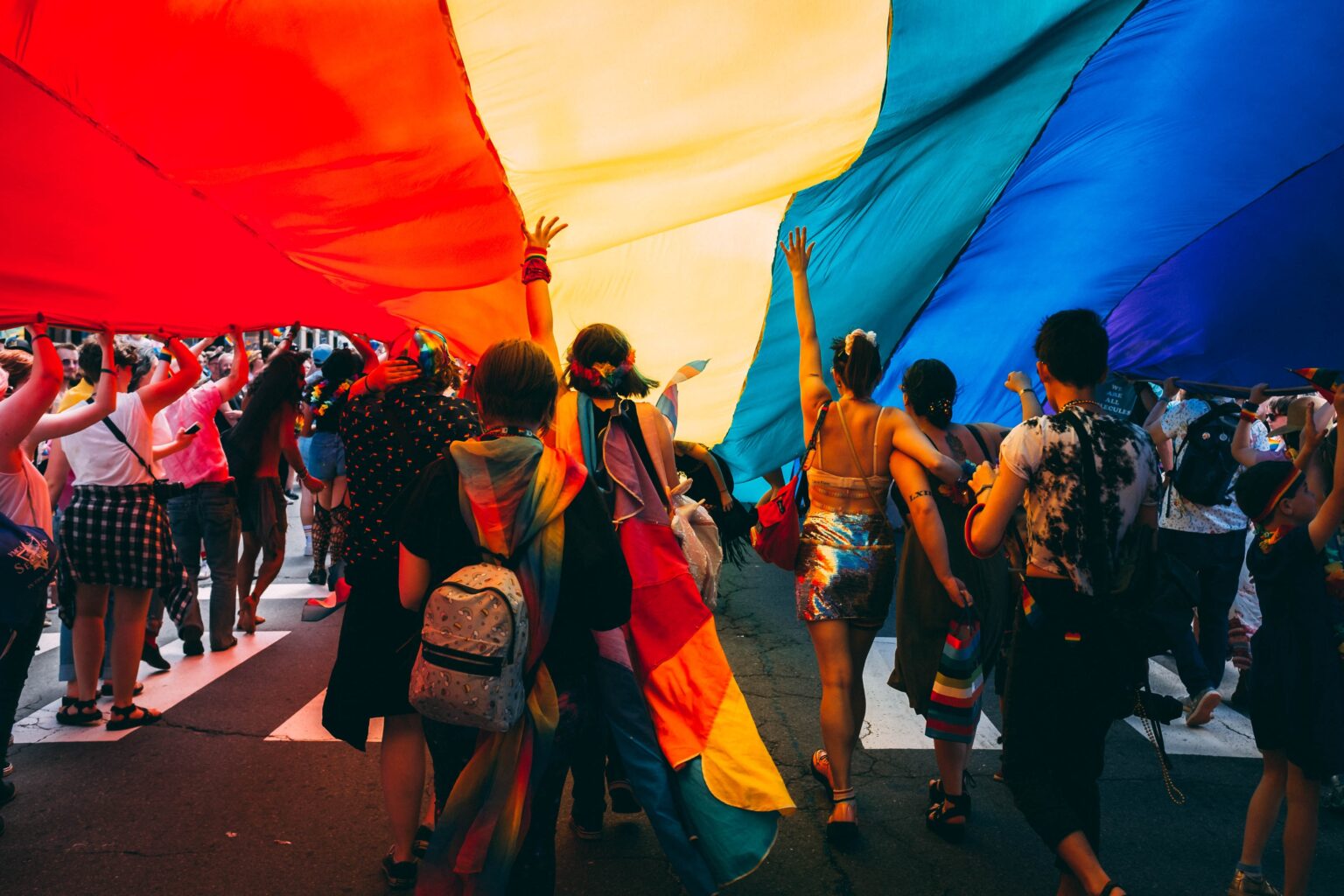
An LGBTI poster vandalised just a few days before the EuroPride in Valletta and an LGBTIphobic attack during Gozo Pride are strong reminders that despite strong legal protections, LGBTI people do not always enjoy full inclusion and safety in Malta.
Shortly before the official opening ceremony of EuroPride, hosted this year by the Maltese city of Valletta, a poster advertising one of the events was vandalised in broad daylight in Castille Square. A few days into the celebrations, in the hours after the second annual Gozo Pride parade, a group of queer people faced verbal harassment on their way to a local bar. The situation escalated and one of the people in the group was physically assaulted. The attack was condemned by a number of ministers.
These are not the types of events that you would typically associate with Malta, an EU country renowned for its strong legal protections for LGBTI people. Thanks to the unwavering efforts of local activists and decision-makers committed to safeguarding the rights of LGBTI people, Malta has topped ILGA-Europe’s Rainbow Map for eight consecutive years. With an exemplary legal framework, ranging from marriage equality to legal gender recognition, and some pioneering measures, Malta stands as a trailblazer and a source of inspiration for its neighbours.
Nevertheless, despite this great work, true equality for LGBTI people has not yet been achieved. These recent events are a reminder that to bridge the gap between law and life, everyone must be part of the journey.
Our Advocacy Director, Katrin Hugendubel, is in Malta to participate in EuroPride. “Despite the country’s robust legal framework, the reality is that discrimination persists,” she says. “While legal protections are a vital ground for equality, they alone cannot ensure that LGBTI people are safe and fully included. Society, with all its complexities, must be brought along, especially in the face of rising anti-human rights forces in the country.”
While Malta has held the number one spot on ILGA-Europe’s Rainbow Map, benchmarking legal frameworks and protections for LGBTI people in European countries, gaps remain in Maltese legislation. The Maltese government is yet to put forward legislation that ensures full protection against discrimination outside employment against, amongst other grounds, sexual orientation, gender identity, gender expression and sex characteristics (SOGIESC).
According to Hugendubel: “It is equally relevant to look at the larger picture and remember that championing the rights of LGBTI people means to advocate for human rights in their entirety. This includes the human rights of migrants and reflecting on sexual and reproductive rights, including the rights to abortion. Moreover, Malta’s leadership in this regard, extends beyond the island, serving as an example for other countries.
“In meetings this week, commitments to present a proposal for the Equality Act were renewed, and Malta has done an extraordinary job in protecting LGBTI people. However, the true test is not just arriving at the top but sustaining this leadership, and translating the legal framework into the day to day life of everyone. Malta must stay vigilant in its commitments to ensure the protection of LGBTI people within its borders, but also as a guiding light for all EU countries and beyond.”
You can learn more about Malta in our Annual Review and Rainbow Map.
What we can learn from LGBTI activists against all odds
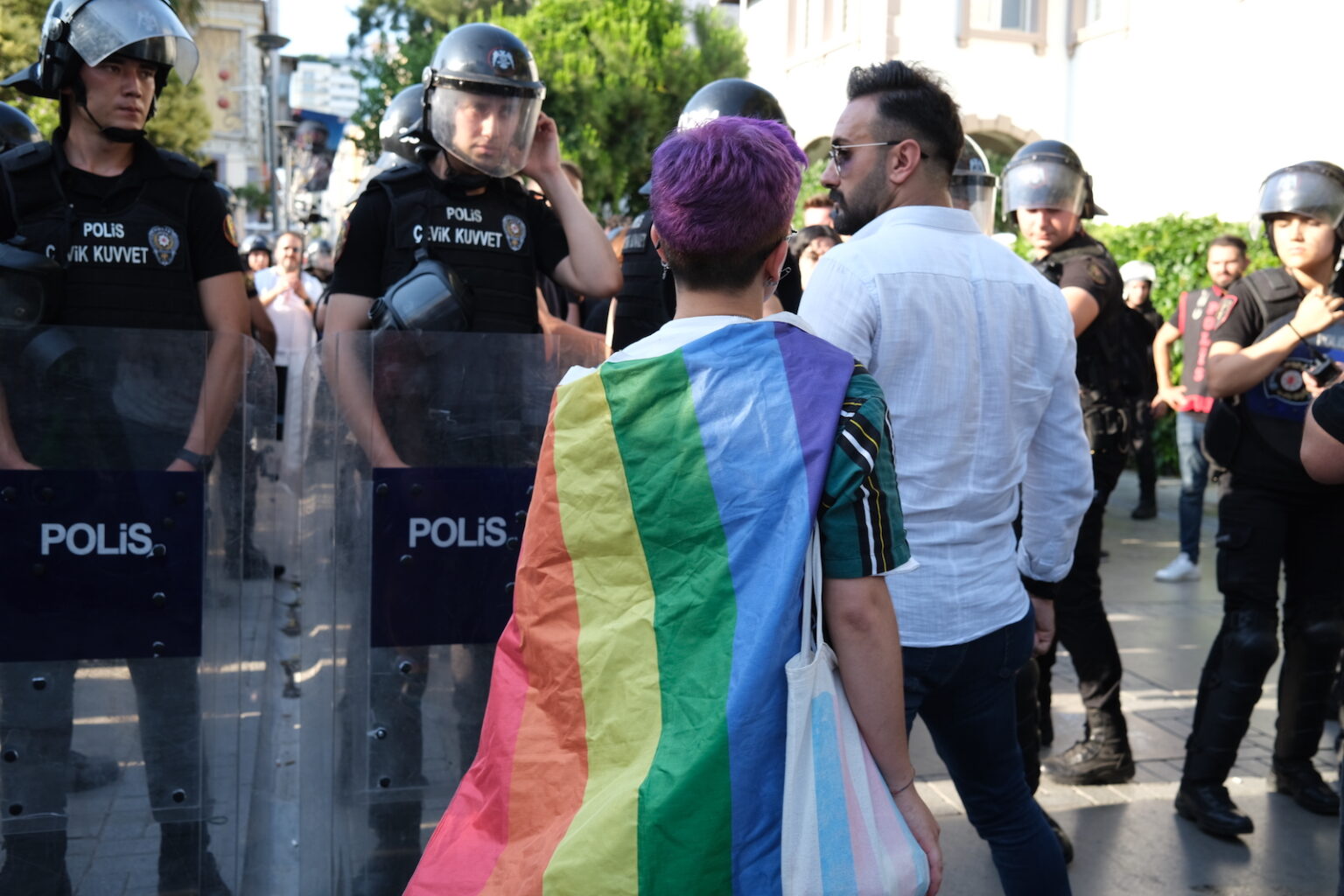
In countries where governments are pushing back on LGBTI people’s rights, joining Pride events is a courageous act that carries higher risks. However, it is in their invisible, everyday work where LGBTI activists showcase their most profound courage. The LGBTI movement in Turkey, as well as in Armenia and Azerbaijan, serve as remarkable examples of resilience against all odds. Keep reading to discover some key insights from our movement and find out more in our podcast.
“Take a moment and imagine yourself in this context,” begins Anastasia Smirnova, ILGA-Europe’s Programmes Director in a recent episode of The Frontline. “For eight years, you’ve been living amidst detentions, smear campaigns, cases against LGBTI activists, and violence that goes unpunished. Extremism and terrorism are terms often associated with the LGBTI movement. You vividly remember last year’s Pride events where hundreds were detained and subjected to police violence.”
This is not a fictional scenario but the daily reality of LGBTI activists in Turkey. Led by recently re-elected President Erdoğan, the Turkish government has intensified systematic attacks on LGBTI people since 2015, when the Istanbul Pride march was banned for the first time.
“So, would you show up at the Pride events in Turkey this year?” asks Anastasia.
“Not an imaginary you – not the bravest and most courageous version of you living in a vacuum. But the real you, with your life circumstances, responsibilities, and current challenges. What would inspire and empower you to show up, ready to face violence and knowing that detentions are possible?”
LGBTI activists in Turkey, and in countries where the government actively opposes LGBTI rights and existence, face potential repercussions, including in their personal lives. But instead of being discouraged by Erdogan’s hostility exhibited during the elections and the previous nine years in office, LGBTI activists in Turkey have organised a record number of Pride events over the spring and summer.
Despite all the risks and knowing that 500 people were detained during Pride season in 2022, they continue to show up.
“It is hard to imagine a stronger and clearer display of strength, solidarity, and resilience than LGBTI people and allies in Turkey taking to the streets, participating in the broader political context, and using their voices despite years of political intimidation,” says Anastasia.
Activism beyond Pride events
They do this not only during Pride season but every day. “For this to be possible, massive invisible work has to happen daily.” This work, unlike Pride events, will not make headlines. Yet, this is the work that enables people to continue showing up and grow their strength in numbers.
Prides and public protests are not the only signs of a strong movement. Referring to the countries at the bottom of our Rainbow Map ranking, where freedom of assembly is severely restricted, “people’s power manifests very differently, and often not on the surface,” explains Anastasia
Examples are offering expertise pro bono, contributing money, helping build connections with businesses, other civil society organisations, the media, among professionals or in educational, cultural, or healthcare spaces.
“It is people doing what they can in their immediate environment to improve the situation of LGBTI people, creating an alternative layer in society that counters state-sponsored anti-LGBTI ideologies,” says Anastasia.
What Turkey, Armenia and Azerbaijan teach us
The three countries at the bottom of the Rainbow Europe scale in 2023 are Azerbaijan, Turkey, and Armenia, the same as the last three years. Yet, the LGBTI movement in these countries offers valuable lessons for all LGBTI groups across the board.
“Over the last 15 years, we’ve seen not only how countries can advance but also how human rights and freedoms are attacked,” says Mehmet Akin, Senior Communications Officer with ILGA-Europe.
When anti-democratic representatives instrumentalise LGBTI people for their own political gain, the freedoms of LGBTI people are gradually taken away. Countries at the top of our ranking are not immune to these anti-democratic forces, who are increasing their presence across the region.
“This is a wake-up call from countries at the bottom of the ranking to those at the top, as LGBTI rights are one of their primary targets,” says Mehmet.
Despite all hardships, LGBTI movements in Russia or Turkey, but also in the EU, as in Poland or Hungary, have developed effective strategies for advocacy, community building, and exercising their freedom of assembly and expression.
“I think activists at the top of our list can learn from the countries at the bottom in terms of the experience they’ve already gained in continuing their work despite legal regression and societal repression,” concludes Mehmet.
Listen to the complete episode and learn more about the strength of the movement against all odds here and to all episodes about our Rainbow Map here.
Photo credits: Murat Kocabaş / Kaos GL
How attacks on Pride are jeopardising Turkey’s hopes for accession to the EU
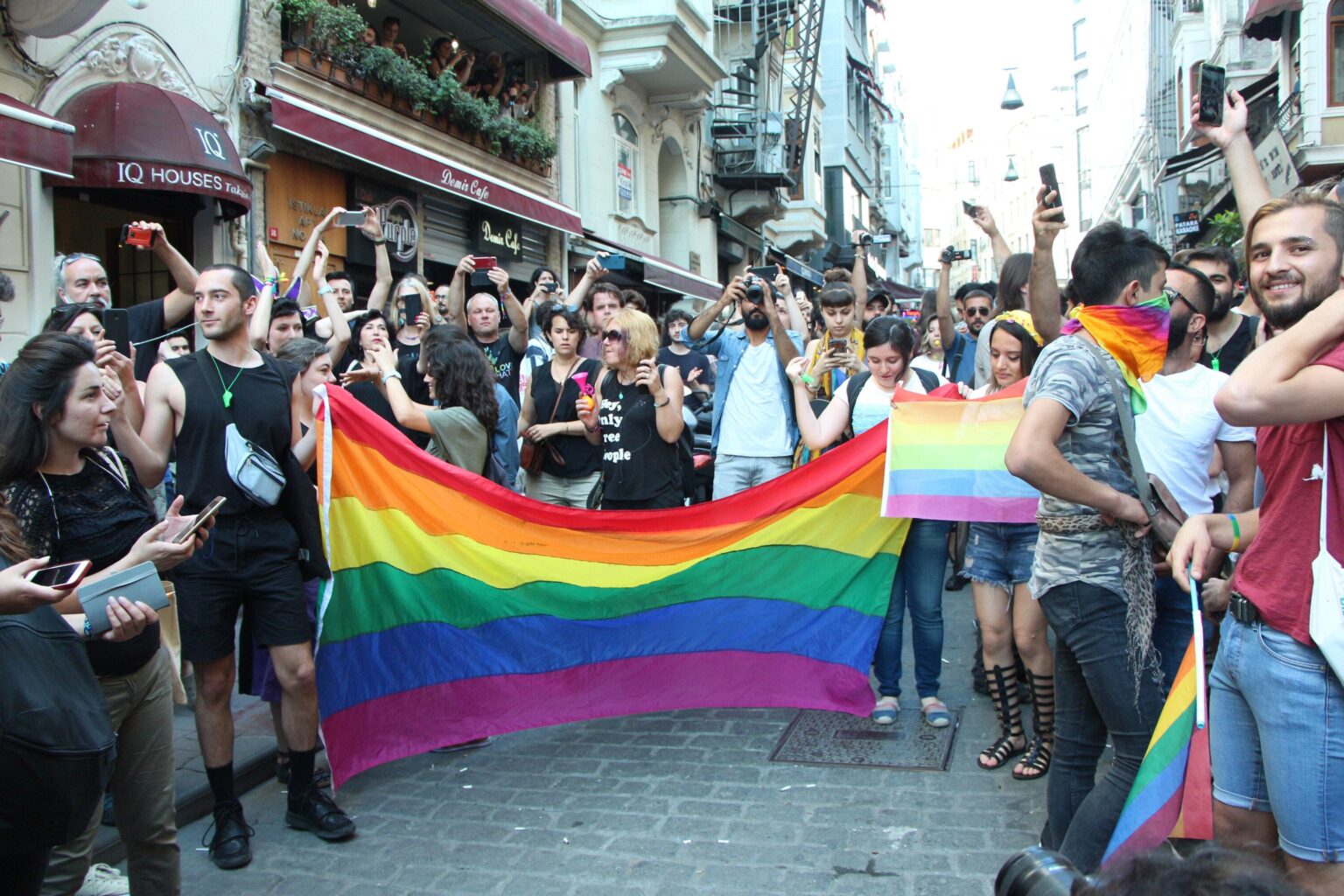
After the detention of 241 individuals at 11 Pride events this summer, the Turkish government must understand that respecting the rule of law and fundamental rights, including those of LGBTI people, is a precondition for becoming an EU member state.
EU accession has once again taken centre stage on Turkey’s political agenda. Since his re-election in May 2023, President Erdoğan has reignited EU accession conversations, stagnant for several years. However, amid this renewed pursuit, the attacks on Pride events and potential regressive changes to the constitution underscore the precarious state of human rights in Turkey. Upholding the fundamental rights of all, including LGBTI people, and ensuring the rule of law remain the cornerstones of the EU. Any future discussions regarding closer ties with the EU must hinge on Turkey’s unwavering commitment to safeguarding these principles.
Erdoğan’s crackdown on Pride
Following the presidential election, marred by a high volume of anti-LGBTI statements, the Pride season in Turkey bore witness to both immense courage and hatered stoked by the state. A record number of Pride events were planned this year, and while some took place without obstruction, many encountered police repression and bans.
Authorities violently interrupted 11 LGBTI-themed events and Pride marches, leading to the detention of 241 people, including four children, seven lawyers, five foreigners, journalists, and activists. Particularly shocking was the case of Iranian LGBTI+ activist Elyas Torabibaeskendari, held in a detention centre despite his international protection status and at risk of deportation to his home country, where he could face a death sentence.
Portuguese national Miguel Alvaro, who was on holiday in Turkey during the event, alleges that he was assaulted by police officers due to his assumed appearance as gay, leading to his 20-day detention without explanation. Protestors also reported incidents of reverse handcuffing, manhandling, and prolonged confinement in vehicles without proper ventilation.
According to human rights activists, the use of torture and ill-treatment by the police was more widespread compared to previous years. It is crucial to remember that the excessive use of force by the police violates the right to peaceful assembly, protected under both domestic law and international treaties, such as the European Convention on Human Rights, to which Turkey is a signatory. Despite the pressure, LGBTI activists displayed resilience, with many Pride events going ahead peacefully, exemplifying the strength and determination of the LGBTI movement in Turkey.
Constitutional amendments: A stride backwards in LGBTI equality
Earlier this year, the Turkish Parliament expanded the threat to LGBTI citizen’s rights. Among various draft amendments to the Constitution, one stood out as direct discrimination against LGBTI people. Under the guise of protecting the institution of the family “against the impositions of pervert movements,” the legislature sought to redefine marriage as “the union of a man and a woman,” essentially eliminating the possibility of introducing same-sex marriage in the country. While the proposal was eventually withdrawn in the aftermath of Turkey’s devastating earthquake and later elections, this amendment, incompatible with the principle of non-discrimination enshrined in the EU treaties and the Charter of Fundamental Rights, is anticipated to re-emerge in the upcoming legislative term.
LGBTI people’s rights are at the core of the EU
Amidst the curtailment of LGBTI freedoms and deeply concerning legislative proposals, the journey to Turkey’s EU accession demands a resolute commitment from all sides to protect the fundamental rights of LGBTI people. LGBTI people’s rights are not negotiable and Turkey’s road to becoming a member of the EU must be based on the Union’s founding values.
The ways we’re working with private companies this Pride season
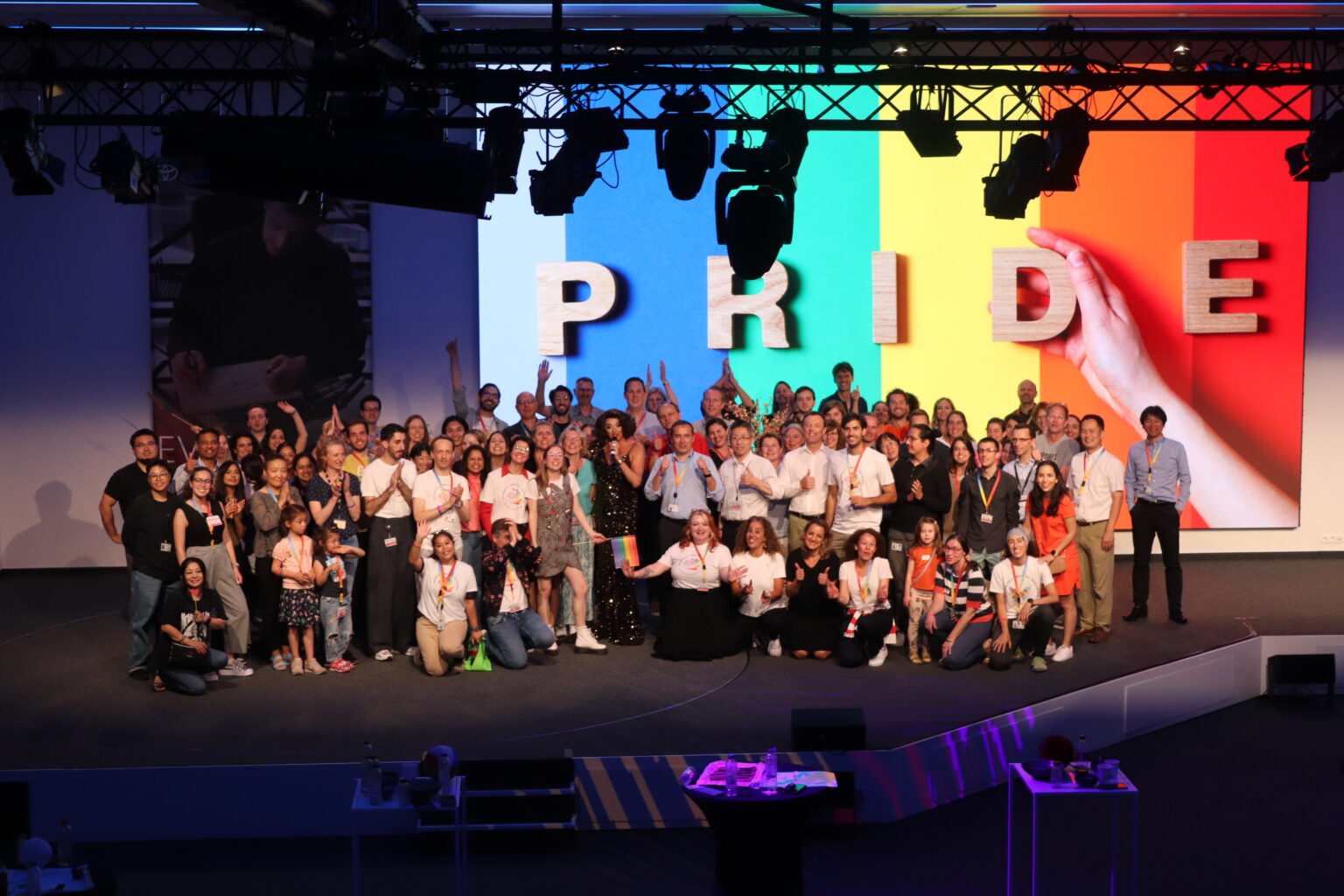
This year, as we do every year, ILGA-Europe have worked with private companies who wish to support our work. But we don’t take every offer that comes our way. Here’s they why, how and what when it comes to partnering with corporates to enhance our vital work with activist organisations across Europe!
Pride season is a time when many companies seek to put LGBTI equality and inclusion front and centre, both internally and externally. It’s also a peak period of corporate support for Prides and other LGBTI groups, including ILGA-Europe. Pride season across Europe continues into September when EuroPride takes place in Malta, so we want to share some highlights of corporate support in 2023 in this blog.
Why do we collaborate with companies?
We are often asked about our collaborations with companies, how we go about them and why. One obvious reason for us to partner with corporates is that it brings vital funding for our work for LGBTI people’s safety, equality and freedom across the European and Central Asian regions. What’s more, this is unrestricted funding, which we can directly regrant to activist organisations in a way that gives LGBTI activists the help they need exactly when they need it, without them having to fill in huge amounts of paperwork that more bureaucratic funders need. This flexibility is particularly important in countries where LGBTI people are at risk.
Beyond funding, private sector partnerships also help raise awareness and bring messages about LGBTI inclusion to different people. As employers, companies contribute to creating inclusive workplaces for LGBTI employees, and in the outside world, they have an impact on the markets in which they operate.
What do we consider before working with a company?
ILGA-Europe’s corporate partnerships are guided by our private sector engagement policy, which sets out principles for working with companies. We look at, for example, the company’s track record on inclusive employment policies, and what it is doing in to foster inclusivity and equality in society. Even if a company still has some way to go, we believe a genuine, demonstrated commitment to advancing rights and inclusion is what matters. This year, as with every year, we have turned down partnership proposals from companies because they were not aligned with our aims or values.
What ways are companies supporting ILGA-Europe this Pride season?
Corporate support can take many different forms, from public-facing Pride campaigns and special edition products to internal awareness raising and tapping into employee giving programmes.
Our collaboration with VIA Outlets this year is a positive example of a brand-new partnership both raising funds and bringing messages of LGBTI equality to new audiences. In words of their CEO Otto Ambagtsheer, the company aims to “create a working and shopping environment that is inclusive and embraces diversity.”
VIA Outlets operates 11 outlet shopping centres in nine countries across Europe, so supporting a pan-European organisation through their Pride campaign made sense to them. For the first time, each centre put on a special Pride exhibition throughout June, showcasing unique shopper bag designs commissioned from local artists and creators connected to the LGBTI community. Visitors could purchase the bags, with proceeds from sales donated to ILGA-Europe.
ILGA-Europe was also pleased to continue collaborating with long-standing partners, including fintech company Revolut, which launched its fifth annual Pride campaign supporting ILGA-Europe. New or existing customers can order a special edition rainbow payment card by making a minimum donation to ILGA-Europe. To show their commitment to LGBTI equality, for every card ordered until the end of July 2023, Revolut will donate £1 to ILGA-Europe, up to £10,000.
Over the past weeks, we’ve had the pleasure of talking to staff teams at a diverse range of companies from easyJet and PayPal to Ipsos, helping to raise awareness about the LGBTI rights situation across Europe as part of their Pride activities. It’s been heartening to see such interest and engagement, with sometimes hundreds of employees tuning in from offices across the region and beyond, asking about what they can do to help.
Several office teams have also put the ‘fun’ into fundraising, with Fourtold’s Brussels office putting on a bake sales, the Toyota Europe team organising a drag show featuring the fabulous LaDiva Live, and the easyJet team taking on dance machine challenges to both have fun with colleagues and raise money for ILGA-Europe.

You can find out more about how companies can support the work of ILGA-Europe on our website, where you can download our ‘partnerships for equality’ information pack and listen to podcast episodes diving into the topic of engaging the private sector for LGBTI equality.
Monitoring Pride in Turkey 2023
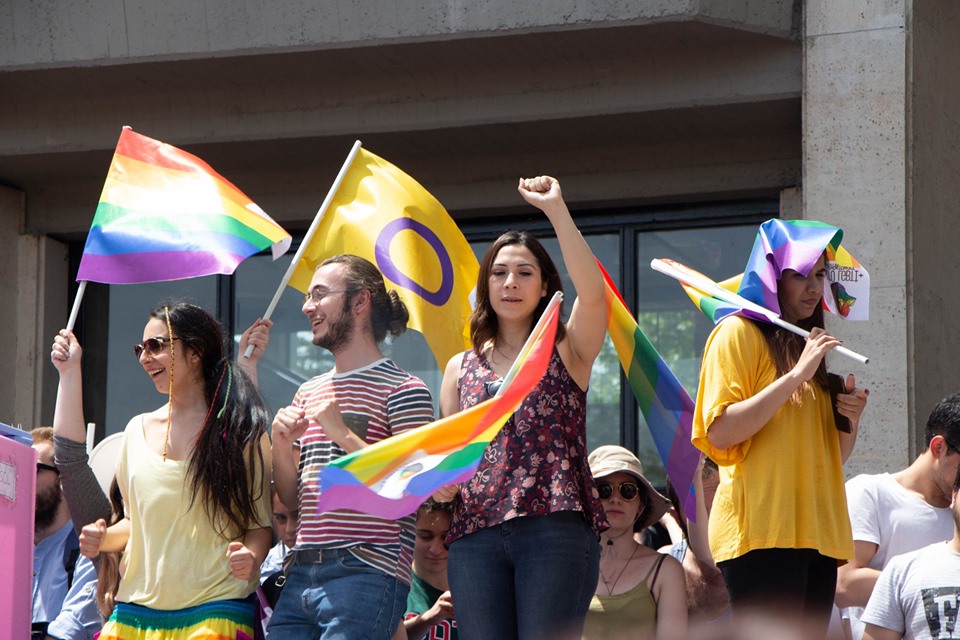
A month after the Turkish elections, for which the winner,Recep Tayyip Erdoğan scapegoated LGBTI people, activists and allies have been rallying at Pride marches across the country. In this blog, we present an up-to-date account of the latest events, as reported by LGBTI activists on the ground in Turkey.
LGBTI activists in Turkey are determined to stand up for human rights. The government, led by President Erdoğan, has been intensifying its systematic attacks on LGBTI individuals since 2015, when Istanbul Pride march was banned for the first time. A month after the re-election of Erdoğan on a ticket that instrumentalised LGBTI people as an enemy, it is Pride season once more in Turkey.
Hate speech, prohibitions, and systematic attacks by Turkish authorities on Pride events have been ongoing ever since that first ban. In 2019, 19 activists were charged with unlawful assembly for participating in a peaceful Pride March at METU University. After a trial that was delayed several times, the METU 19 were eventually acquitted in 2021.
Following his re-election as President of Turkey for another five years, Erdoğan again directed his hostility towards the LGBTI community, targeting LGBTI+ people throughout his campaign and the previous nine years in office. During the election campaign, the ruling bloc expanded its coalition with the New Welfare Party and HÜDAPAR, which are known for their anti-LGBTI+ stance and the ruling party signed a protocol with the New Welfare Party which has been demanding the closure of LGBTI+ associations.
Instead of being discouraged by these daunting events, or the fear of increased pressure from the government, LGBTI activists are working harder than ever to ensure their right to assemble and to be seen. As risks and repression grow, activists on the ground are closely monitoring this Pride season. We will continue to develop this list as news comes in.
Saturday, June 2 – Bilkent University Pride, Ankara: No intervention or arrests occurred.
Friday, June 9 – METU Pride, Ankara: Police intervened and made 15 arrests, but all were released by 03:00.
Sunday, June 12 – Sabancı University of Istanbul: Peaceful event with no arrests or police intervention.
Sunday, June 12 – Cins Klüp: The LGBTI+ student community at Sabancı University, one of the most prestigious universities in Turkey, organised a Pride march on campus despite attempts by the private security unit to prevent it.
June 16-18 – Aydın LGBTI+ Pride Week: No march, only events were held.
Sunday, June 18 – Adana Colors of Resistance organised an event for trans visibility day called “Trans visibility in the struggle of LGBTI+ rights”.
Sunday, June 18 – Trans Pride Istanbul: The newly appointed Istanbul Governor, Davut Gül, had previously targeted Trans Pride and the LGBTI+ Pride March, issuing a threatening message on Twitter with an emphasis on “family”. Although no official ban was issued by the Governorate, the police blocked the Taksim area with barricades on Sunday morning. The police attacked those gathered in the Harbiye district of Beyoğlu and also targeted press workers who were documenting the events. Despite these challenges, activists delivered their press statement and marched for the 9th Trans Pride.
Sunday, June 25 – Istanbul Pride: The march took place without police intervention, but the police intervened after the march had concluded and the number of detainees has reached 64, including foreign nationals in danger of deportation. Relevant UN agencies, LGBTI+ and refugee organizations are following the process.
Sunday, June 25 – Izmir Pride: A ban was announced the night before the march. There was violent police intervention, resulting in the detention of approximately 50 individuals. Protesters were handcuffed behind their backs, manhandled, and kept in detention cars without fresh air for an extended period.
On Sunday 9 July – Eskişehir Pride: Police blockaded the Hasan Polatkan Cultural Center, where the march was to take place. Stating that the Governorate of Eskişehir had issued a ban on 14 June, the police announced that they would not allow the march to go ahead. Those who had gathered for the march asked for time to disperse. The police intervened harshly and detained 18 people, two of whom are lawyers. The detainees were released on the same day.
3-9 July – Adana for LGBTI+ Pride Week: The police intervened during a press statement organised for Pride Week. 18 people, including HDP Provincial Co-Chair, Helin Kaya, were beaten and detained. Green Left Party Mersin MP Perihan Koca was beaten and reverse handcuffed. The detainees were released by midnight.
It is not just Pride marches that face repression and obstruction. LGBTI-themed gatherings and events are also facing similar treatment.
In June, the second Aegean Pride Picnic, organised by LGBTI students at Ege University in Izmir, received open threats from Turkish Youth Union (TGB), the youth branch of the Patriotic Party, Grand Family Platform (Büyük Aile Platformu), TÜGVA and the New Welfare Party and was eventually postponed after the police stated that they could not ensure the safety of LGBTI+ students. When the organisers attempted to read a public statement in front of the Izmir Bar Association, a professional organisation of lawyers defending human rights, the police attacked activists and assaulted lawyers. Despite these challenges, the activists managed to read their statement.
The Pride Picnic of Direnişin Renkleri (The Colors of Resistance), a local student initiative at Izmir Democracy University, had planned their own Pride Picnic on June 13. However, hours before the event, the police initiated a blockade both on the university campus and in the picnic area. The police threatened LGBTI+ students and detained two students by beating them. The detained students were taken to Balçova Police Headquarters but were later released after providing their statements.
On June 14, the Patriotic Party and its youth branch, Turkish Youth Union (TGB), targeted an LGBTI+ Pride Month event scheduled to take place at the Ankara Bar Association. A group of ten people gathered before a gender equality panel and insulted those attending. The police did not intervene, and the event proceeded despite the provocation.
On June 15, the Eskişehir Governorate banned all kinds of LGBTI+ themed public events across the city for a month, citing “public morality”.
Also on June 15, the ‘Tea & Talk’ event for English speakers in Istanbul, organised by Lambda Istanbul, one of the oldest LGBTI+ associations in Türkiye and held in various café’s for years, was banned by the Kadıköy District Governorate. The ban was communicated to the café where the event was supposed to take place. According to the Kadıköy District Governorate, it is “inappropriate” for LGBTI+ individuals to sit in a café, drink tea and engage in conversation.
The concerts of singers Melike Şahin and Mabel Matiz in Bursa and Denizli, respectively, were cancelled due to their LGBTI+ supportive award speeches and celebration pride at the stage at the Elle Style Awards. Denizli’s municipality cancelled Mabel Matiz’s concert without providing any reason. Melike Şahin is known for her support to LGBTI+ movement while Mabel Matiz is an openly queer singer.
As a human rights organisation, ILGA-Europe are deeply concerned about the ongoing challenges faced by LGBTI activists and the repression of LGBTI events in Turkey.
During a recent study visit organised by ILGA-Europe, activists discussed the protection of LGBTI rights in Turkey at different EU institutions. We will continue to follow Prides in Turkey in close contact with activists and to mobilise international support to ensure the freedom of assembly and all human rights of LGBTI people in the country.
Statement: EuroPride Goes Ahead in Belgrade Despite Calculated Obstruction
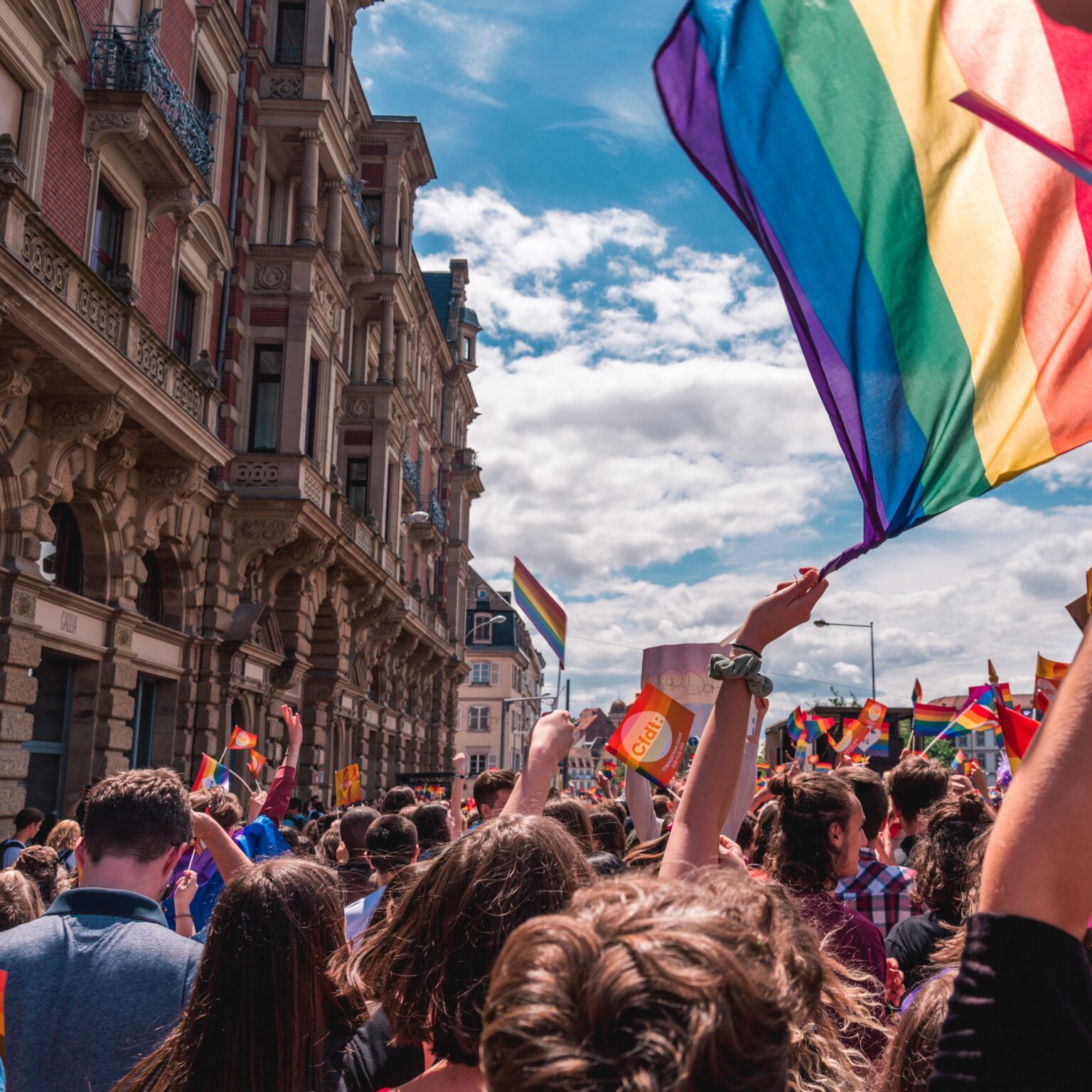
All at ILGA-Europe send our support and solidarity to the organisers of EuroPride and Belgrade Pride, the LGBTI community in Serbia and the Balkans, who have demonstrated such courage and resilience today.
According to Evelyne Paradis, who will be in attendance at the march in Belgrade at 5pm, “The fact that a gathering is taking place after all of this should not be mistaken as the Serbian government upholding its obligations on the right to freedom of assembly.
“They have done everything in their power until the very last minute to obstruct, to discourage, and to intimidate the organisers.
“Beyond the Pride march itself, the risks of increased vulnerability to violence and hatred are very real for citizens in Belgrade and beyond, following repeated anti-LGBTI statements by political and religious leaders in Serbia.
“The unfolding of events since President Vucic announced he would ban EuroPride is a clear case of instrumentalising LGBTI people for political purposes; using LGBTIs as pawns in larger political games, as far-right, anti-democratic forces gain ground with support of external influence.
“I am proud to march with every participant in Belgrade, as we exercise our right to be in this public space, and our inalienable human right to freedom of assembly.”
Statement on the Ban of EuroPride Route in Belgrade
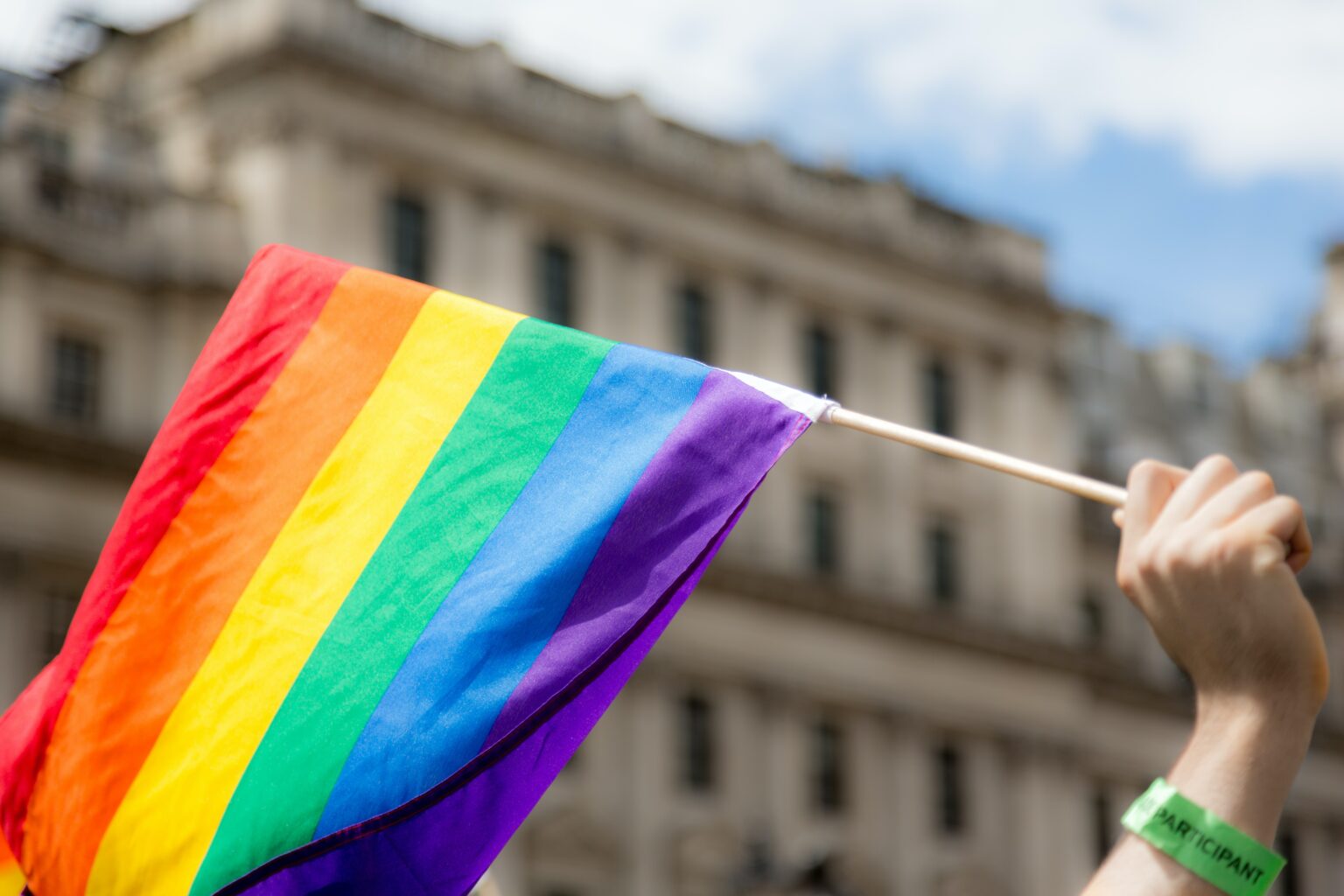
Today, the Serbian police announced an official ban on the route of the EuroPride march in Belgrade this coming Saturday.
On August 28, the Serbian President Aleksander Vučić announced that the EuroPride march in Belgrade planned for September 17 would not go ahead. Today, the Serbian police instead announced a ban on the route for the parade, which had already been agreed between the organisers of Pride and the Serbian authorities.
In response to the ban, our Executive Director, Evelyne Paradis, said, “ILGA-Europe strongly condemns the ban of the EuroPride route announced by the Serbian police, and is deeply concerned by the persisting attempts by the Serbian authorities to prevent the Pride March from going ahead, and taking place safely. Not only is the Serbian government clearly failing to respect its obligations under human rights law to ensure freedom of assembly for all citizens, they also fuel anti-LGBTI rhetoric which puts LGBTI people and community at increased risk of violence.
“We call on the Serbian government to ensure that everyone who wants to join the March on Saturday 17th September in Belgrade is fully able to exercise their right to freedom of assembly, and that they are fully protected both during the march itself and on the streets of Belgrade in its aftermath.
“I will be there to march alongside Belgrade Pride organisations who have already been working for a long time to organise a safe and peaceful EuroPride march this weekend.”
For further comment, please reach out to our press and media officer ana@ilga-europe.org
ILGA-Europe strongly condemns President Aleksandar Vučić’s statement announcing a cancellation of EuroPride 2022
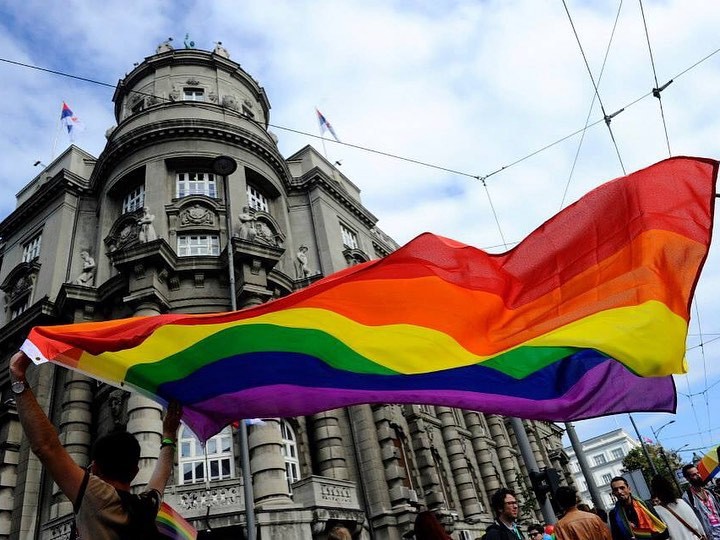
We want to remind President Vučić of Serbia’s commitments under the European Convention of Human Rights, especially with respect to ensuring the effective enjoyment of right to freedom of assembly and expression, as reaffirmed through multiple judgments of the European Court of Human Rights.
Serbia also has an obligation to ensure that participants in peaceful demonstrations, including LGBTI public events and marches, are effectively protected and able to exercise their right safely. Acknowledging that Pride organisers have held safe and peaceful pride marches for 8 consecutive years in Belgrade, we trust that Serbian authorities have demonstrated they can address any security concerns which may arise.
Evelyne Paradis, ILGA-Europe’s Executive Director, commented: “Equality, justice and freedom are not matters that can be put aside when political and economic problems arise. On the contrary, they are cornerstones of building free, democratic and prosperous societies, which should therefore be a priority at all times for any government.”
Many people will be coming to Belgrade for EuroPride 2022, including several European officials, acknowledging the importance of holding the event for the first time in the Western Balkans. ILGA-Europe will also be joining to celebrate with the LGBTI community the growing support from the wider population for LGBTI people in the region.
We therefore reiterate our full support to the organisers of EuroPride 2022 and to the entire LGBTI+ community in the Western Balkans region.
How well protected are LGBTI public events in Europe and Central Asia?
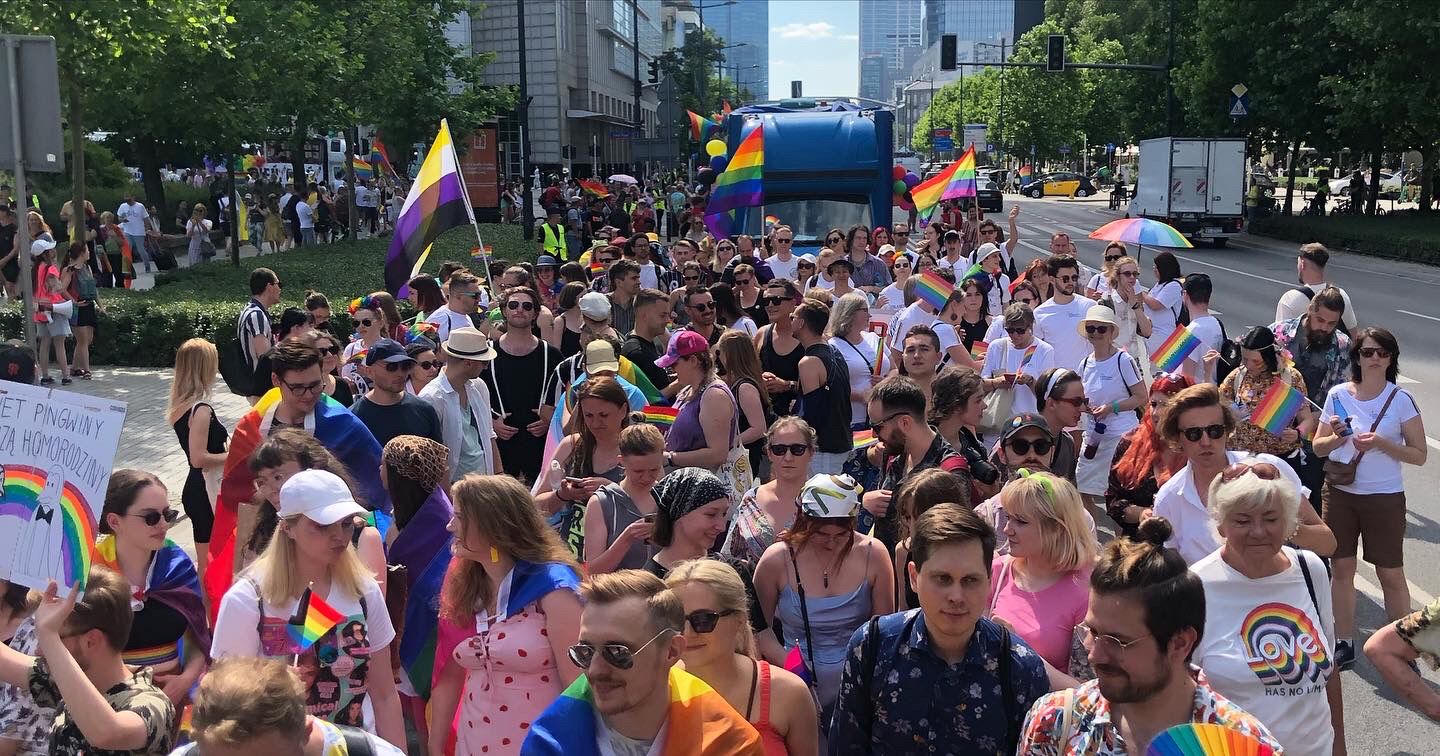
Oslo Pride was cancelled on Saturday in the wake of terrorist attack near the city’s largest LGBTI bar, while over 373 Pride participants were detained in the Turkish capital of Istanbul. Meanwhile, after years of mounting tension and attacks in Poland, Warsaw Pride went ahead without any trouble this weekend. Here’s our overview of the state and protection of freedom of assembly for LGBTI people in the region.
In some cities, Pride is celebrated with freedom, joy and dancing, but in others it is prohibited, as in Istanbul, where roughly 370 participants were arrested this weekend. Or participants are attacked, as they were in the Romanian city of Iasi earlier this month. In Oslo, after the tragic attack on the London Bar on Friday, June 24, the police decided that Pride in the city would be cancelled for the safety of all involved.
Freedom of assembly is a human right, that is the right of LGBTI people to gather in celebration or protest, or simply to put on an event, but as we are seeing, this cannot be taken for granted. Prides and other LGBTI public gatherings remain crucial, as they clearly give us a picture of how well protected the fundamental rights and physical safety of LGBTI people are in any country.
Have a look at some outstanding events from 2021 to 2022 that show the advancement, stagnation or regression of LGBTI people’s freedom of assembly in Europe and Central Asia:
Azerbaijan
Activists in Azerbaijan have announced plans to celebrate Pride for the first time in the country’s history. “We have launched this initiative together to be the voice of all those who are facing problems, are threatened by society and the government, and whose rights are being violated,” feminist activist Rabiya Mammadova said at a press conference in Baku on June 9. “The LGBTQ+ community is threatened by both society and the state. Given the existing threats, the queer community must now find its place in society.”
The exact format and dates of the events are still being decided.
Belgium
A family was attacked by several people after Belgian Pride in Brussels. Three young men, allegedly, first insulted the family because the child was wearing a rainbow flag, and then attacked physically the kid and his mother and sister. The suspects were quickly arrested nearby the place where the aggression took place.
Bosnia and Herzegovina
Third Bosnia and Herzegovina Pride parade was held in Sarajevo under the slogan “Family reunion!” An anti-LGBTI rally was held in the neighborhood of Otoka in the city, entitled “Give us back the rainbow”. The Pride march went without incident despite the counter demonstration.
Bulgaria
Nearly 12,000 people turned out on June 18 for the 15th annual Sofia Pride in Bulgaria, and the crowd was addressed by several foreign ambassadors. According to the Sofia Globe, there were three events in Sofia in protest against Pride and “in defence of the traditional Bulgarian family”, while the week earlier saw the customary objection by the Bulgarian Orthodox Church, and weeks ago, calls by ultra-nationalists in Sofia city council for Sofia Pride to be banned. Despite these counter demonstrations and recent attacks against LGBTI people and premises, Sofia Pride went without incidents
Croatia
The 21st Zagreb Pride took place on June 4 under the motto “Give us our four walls!”, with activists demanding that LGBTI people be given afforded a centre in the city. Mayor Tomislav Tomaševi? announced he would talk with LGBT associations about their demands.
Estonia
On Saturday, June 11, Pride was held for the first time ever in Tartu, Estonia’s second-largest city. About 1,000 people from the LGBT+ community and their supporters marched from Vanemuise Park to Tartu’s Town Hall Square, where speeches were given among others by Brian Roraff, the temporary deputy assistant US ambassador to Estonia, Ingrid Tersman, the Swedish ambassador, and Ross Allen, the British ambassador in Tallinn.
France
Several trans women were attacked at Paris Pride by trans exclusionary forces in 2021. In Bordeaux Pride this year, a LGBTphobic sign read “Protect the children. Stop LGBT madness”. Other participants were attacked and nine people were arrested. Furthermore, six people were injured after the structure of a float fell apart, an accident, in principle, not connected to the anti-LGBTI attacks.
Georgia
The safety and freedom of expression and assembly of “each individual” will be protected during the upcoming Tbilisi Pride Week, Georgia’s Interior Ministry announced this week, as the city’s celebrations began. The organisers however decided this year not hold the Dignity March, to see how the Ministry of Interior would protect closed events. The ministry also called on anti-LGBTI protest groups to “abide by the law”, noting otherwise “each case” of violation would be prevented and a “strict legal response” would follow.
Organisers of the Pride Week announced at the weekend that the Conservative Movement political party, which is affiliated with the Georgian right-wing media outlet Alt-Info, had “openly declared” it would attack the Pride Week and “repeat the events” of July 5 last year, when right-wing activists assaulted and injured over 50 journalists who had gathered to cover the eventually cancelled Tbilisi Pride march.
Hungary
Amid the introduction of anti-LGBTI legislation by the ruling Fidesz party, last year’s Budapest Pride march brought together a record 35,000 people and the country’s first Pride march outside the capital took place in Pécs. After national elections that saw Fidesz hold on to power, although an anti-LGBTI referendum on the same day was invalidated, Budapest Pride will take place again on July 23.
Kazakhstan
On March 8, 2021, Feminita along with other grass roots feminist groups and activists managed to get a permission to organise the Women’s March for the first time in one of the largest cities of Kazakhstan in Almaty. The march was a success gathering women of all walks, including LBQT women and displaying LGBTI symbols along the streets of Almaty. However, in 2022 the Women’s March was restricted yet another time. Following the political crisis that spread all over the country in January 2022, the authorities banned various public events, including marches. Feminita and other local groups organised a gathering rather than a full-fledged march like the one the year before.
Liechtenstein
Pride took place in the country for the first time on 11 June, 2022.
Lithuania
Last year, Kaunas celebrated its first Pride after a court ruled against the refusal of the municipality to grant a permit. 2,000 people attended and although there were several counter-demonstrations and attacks, civil society assessed the police’s work as generally good.
North Macedonia
The third Skopje Pride took place on 25 June under the slogan “Come Out for Love! Dignity. Equality. Justice”. The Pride took place without incident.
Norway
An impromptu protest with hundreds of marchers took place in Oslo, after police cancelled Pride in the wake of an attack on the LGBTI community by radicalised Islamist, Zaniar Matapour in the early hours of the day. Two people were killed and 21 injured in the attack. An official demonstration of solidarity with the victims of the attack was held in the city yesterday, Monday June 27
Poland
This year, Warsaw Pride twinned with Kyiv Pride, in support of Ukrainian LGBTI people affected by the war in Ukraine and of course unable to hold Kyiv Pride in Kyiv itself this year. Many European officials were in attendance and the parade went ahead without any attempt at a ban or negative incidents.
Romania
Pride participants in Iasi, the largest city in eastern Romania, were attacked by conservative and religious protesters on June 5. The anti-Pride protesters chanted “Iasi is not Sodom’ and then attacked the Pride marchers by throwing eggs and setting off flares. A police Gendarmerie bus separated the two groups along the route of the march, and officers were deployed to prevent tensions from escalating further. Last year Bucharest Pride and Ia?i Pride were blocked by their respective municipalities, but thanks to work of LGBTI activists were allowed to go ahead eventually, albeit with restrictions.
Turkey
On Sunday, June 26 police forcibly intervened in the Istanbul Pride march in Istanbul, detaining 373 demonstrators including journalists and photographers. Hundreds of protesters carrying rainbow flags pressed ahead with the rally in defiance of police. This police attack on Pride was one of a number this year, as in previous years. Already on 20 May Bo?aziçi University Pride was forcibly repressed by police, with 70 detentions, and METU Pride was repressed on 10 June with 38 detentions. The first Canakkale LGBTI+ Pride Week, planned for 13-17 June, was banned by Çanakkale Governorship, the first Datça LGBTI+ Pride Week was attacked by police on 20 June, Izmir Pride was banned and police detained 12 people. Eski?ehir Pride is planned for 3 July but the governorate has already issued a ban, and Ankara Pride is scheduled for 28 July. Violent police intervention is expected at both events.
6 tips for LGBTI organisations partnering alongside a business in Pride season

How businesses engage with LGBTI inclusion has changed enormously in the last decade. Today, more businesses actively seek to work together with civil society organisations, while these may find new allies in the private sector. If you are part of an LGBTI group and are considering to collaborate with companies as Pride season kicks off, this blog and our Frontline podcast mini-series are for you.
“We cannot deny the influence of the private sector in our societies,” says Evelyne Paradis, ILGA-Europe’s Executive Director, in our latest Frontline podcast mini-series exploring the challenges and opportunities that come with businesses supporting LGBTI equality. “They have access to power in a way we don’t. We need to build bridges.”
Many businesses are seeing the benefits of LGBTI inclusion both internally and externally, from market reputation to talent attraction and employee motivation. For many LGBTI activists at home with addressing policy-makers and providing services to communities, working with the private sector may be an unknown arena, even raising eyebrows.
However, a partnership can be “incredibly mutually beneficial” for both sides, says Nancy Kelley, Stonewall’s Chief Executive. “Companies can learn how to be better employers, better suppliers to consumers, as well as to be supportive to communities. And for civil society organisations it is an opportunity to access powerful supporters and to access funding they wouldn’t have otherwise.”
Furthermore, companies can reach broader audiences and have an effective impact on public opinion. This is especially relevant when LGBTI rights are at risk. One example is this advertisement campaign in which Mermaids collaborated with Starbucks in which a trans teenager hears their chosen name for the first time at the coffee retailer.
Here are key tips for LGBTI organisations partnering alongside a business that may be particularly useful in Pride season:
1.Before agreeing on a partnership, assess whether your values align and what the motivations of the company are. Find out if they have an authentic approach towards LGBTI equality by looking for key indicators:
- Strong support from leadership in implementing LGBTI inclusive policies and practices in the workplace.
- Supporting LGBTI equality is seen as a long-term, sustained and well-funded effort. A sign of this vision could be training programs on inclusion and diversity.
2. Make a holistic appraisal of your potential partner. Beyond LGBTI equality, look at their approach towards the environment and labour rights, including their supply chain, and any issue that matters to you.
3. Engage with the LGBTI employees of your business partner.
4. Companies can support you in a range of ways. In addition to funding, other resources companies can provide include pro bono support and advice or goods and services in-kind.
5. Be clear about your objectives, what you can and can’t offer, and ensure that the partnership is balanced in term of outcomes.
6. Make sure both parties are clear about the objectives, obligations, deliverables and timeline of the partnership in a written agreement.
Do you want to know more? Stonewall has useful advice for you.
What Pride Reminds: How anti-gender forces and blocks to progress on HIV/AIDS in Europe and Central Asia are intertwined
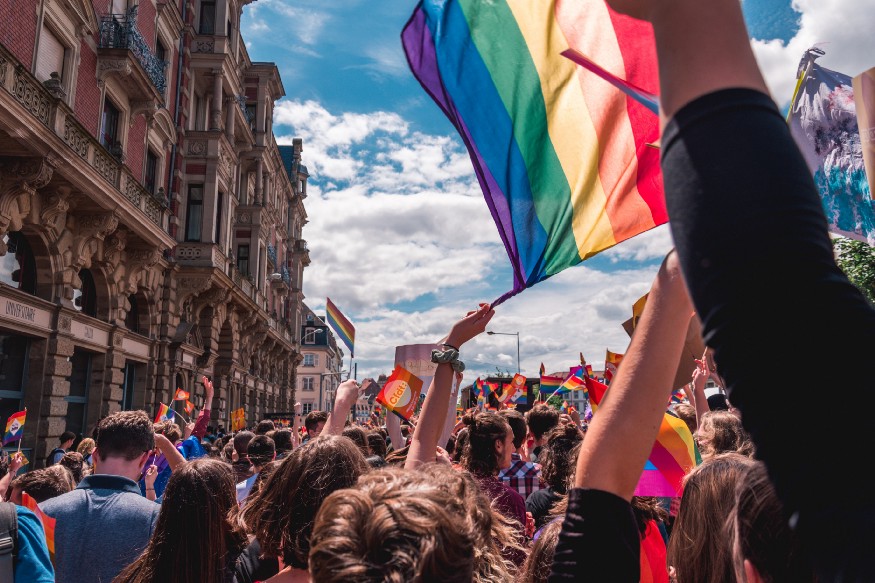
In moments like these, where even our former allies are using us to advance their own political goals, pride and its value become ever clearer.
Pride is protest and a celebration of our diversity. This June has brought a complex moment into focus — with a pride march returning to Warsaw just days after Hungary passed an “anti-propaganda” law banning the teaching of anything LGBTI-related in schools, as one governing party in Spain re-took control of the legal gender recognition law reform process from a politician who blocked the process for months and herself holds so-called “gender critical” views and a storm of online hate rocks LGBTI activists in Albania, and as the grip of the pandemic loosens in some parts of the region while others are still struggling to control the pandemic — a battle in which access to HIV prevention, testing and treatment, alongside vital care for trans and intersex people, were too frequently deprioritised.
In the context of COVID-19, LGBTI organisations across the region reported breakdowns in healthcare for trans and intersex people, as life-saving transition-related healthcare was cancelled or postponed, and as travel to a trusted doctor became difficult or impossible. For example, intersex people are frequently subjected to medical trauma, and often seek healthcare from only trusted providers, who may be far from home, even requiring cross-border travel. Due to national lockdowns and restrictions, life-saving transition-related healthcare was cancelled or postponed, and travel to a trusted doctor became difficult or impossible. Similarly, breakdowns in HIV prevention, testing, and treatment services were reported around the region. As the HIV/AIDS epidemic in Europe and Central Asia dramatically impacts gay and bisexual men and trans people, homophobia, biphobia, and transphobia remain all too prevalent, pushing LGBTI people into the closet and keeping them from seeking effective HIV interventions for fear of stigma, discrimination, and ostracisation.
This double-edged decrease in services exposed LGBTI people — as well as all people living with HIV, people with disabilities, migrants, racialised people, and systemically marginalised people — to a crisis in resources that has yet to be resolved. LGBTI organisations, as well as some HIV/AIDS response organisations, redirected resources to purely humanitarian means, dropping their vital advocacy and policy work to ensure that community members survive the COVID-19 crisis. This redirection created a chasm in the political space, which is especially dangerous — policy is moving forward, and too many of our demands fail to make it to the table.
In moments like these, where even our former allies are using us to advance their own political goals, pride and its value become ever clearer. Pride started as a protest, a riot against repression from a state determined to erase us — and most specifically those of us who are trans women, who are sex workers, who are migrants, who are Black and people of colour, those who are HIV positive. Those efforts from states remain, and we are left scrambling to meet our basic needs, let alone to advance protections of our human rights. But pride is our moment — one where we come together to heal, to regroup, to celebrate the beauty and brilliance of LGBTI people, and remains, at its core, a reminder to ourselves that we must continue to fight.
And when we fight, we win.
Turkish court postpones trial of 19 Pride attendees, infringing their right to fair judicial process
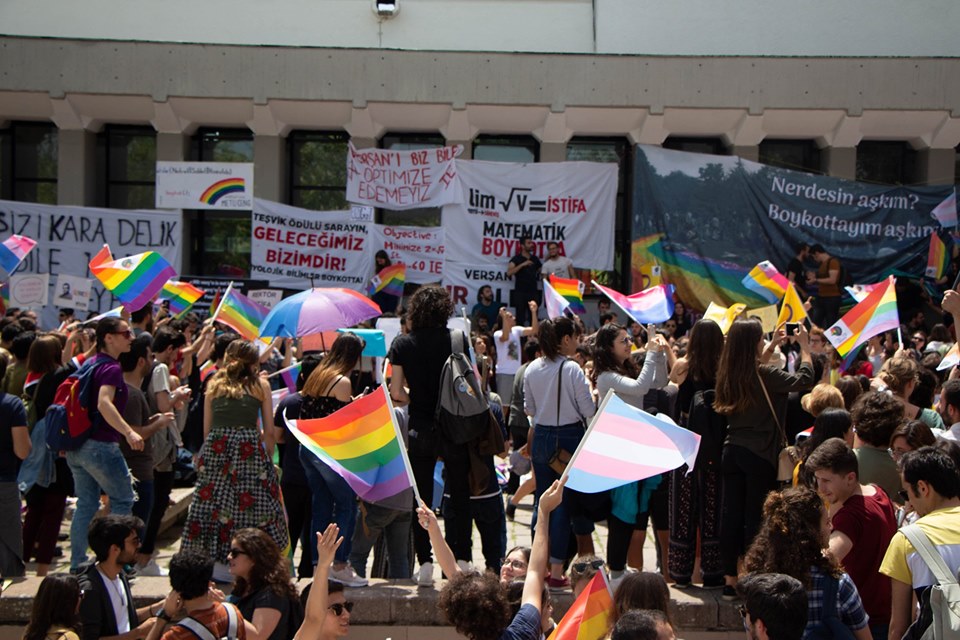
The Turkish courts’ postponement until next April of the trial of 19 people accused of “unlawful assembly” after taking part in an LGBTI Pride march last year is clearly infringing their right to a fair trial, and sending a worrying signal from the judiciary, says ILGA-Europe.
During the hearing, all the defendants gave testimonies explaining how this trial is a cloud over their heads which negatively impacts their everyday lives. The trial has lasted one and a half years so far, and has affected them personally, academically, and professionally. This further postponement to 30 April 2021 means that the defendants will have been under this pressure for almost two years, and they argue that this constitutes a violation of their human rights.
According to Özgür Gür, from METU LGBTI+ Solidarity: “This trial is not only against the METU students, but against Pride marches around the country.”
Melike Balkan, from METU LGBTI+ Solidarity added: “We have repeatedly asked the police to give us the reason for their presence at the campus, and they continued to point to the ban by the governor of Ankara, but it is clear through the Turkish governments’ response to the UN that the governor could not ban an event on campus grounds. Police forces misled us and prevented us from exercising our basic human rights.”
According to Katrin Hugendubel, Advocacy Director at ILGA-Europe: “LGBTI rights have been systematically attacked in Turkey in recent years and by postponing the trial yet again without any comprehensible reasons, the courts are clearly infringing the right to a fair trial and fair judicial process. This is a worrying signal from Turkey’s judiciary, especially in the context of rising hate-crime and hate-speech against the LGBTI community in the country. In 2020, LGBTI activists in Turkey have seen their offices targeted by violence, their online spaces restricted, and the LGBTI community has been blamed for the COVID-19 pandemic by religious and political leaders.
“The right to freedom of assembly, which Turkey is bound to respect according to its Constitution and the European Convention on Human Rights, to which it is a party, needs to be clearly upheld. ILGA-Europe will continue to work with international institutions and supporters to try to ensure a fair trial that will respect the right to freedom of assembly and non-discrimination of LGBTI people in Turkey, and which will acquit the unlawfully accused activists at the next hearing.”
On Wednesday, in a separate case, a district court in Istanbul ruled that last year’s ban on the city’s Pride march was unlawful and in breach of the Turkish Constitution, the European Convention on Human rights, and other international agreements to which Turkey is party.
Further information:
- Read our joint statement with 8 international human rights organisations here, and download it in English and Turkish.
- Read our pre-trial press release, published on 7 December 2020.
- Timeline of the story so far.
For further comment, contact: Ana Muñoz Padrós, ILGA-Europe: ana@ilga-europe.org, +32 493 35 60 55
Turkey: 19 LGBTI Pride marchers must be acquitted in forthcoming trial

Turkey must uphold its domestic and international commitments, and dismiss all charges against 19 human rights defenders, prosecuted for their participation in a peaceful Pride march at Middle East Technical University (METU) in Ankara in May 2019, says Europe’s largest LGBTI rights umbrella organisation, ILGA-Europe.
On December 10, International Human Rights Day, 18 students and one academic, who were detained, charged and prosecuted for their participation in a peaceful LGBTI Pride march at Turkey’s Middle East Technical University (METU), will come to trial. Although they were exercising their right to freedom of assembly, the 19 human rights defenders face charges of “participating in an unlawful assembly” and “failing to disperse despite being warned”. If found guilty, they could face up to three years in prison.
METU Pride had peacefully taken place in the city of Ankara every year since 2011. However, on 10 May 2019, a few days before the annual event, the administration of METU said it could not go ahead. Ankara had banned all LGBTI+ activities under a state of emergency in 2017, but this ban had been lifted earlier in 2019. There was no legal basis for METU’s administration to ban the march, so activists and students got together and exercised their legal right to freedom of assembly, celebrating LGBTI Pride. The administration then called the police, who used excessive force to disperse the march. Tear gas and plastic bullets were fired at the crowd, students were dragged across the ground, pushed up against trees and sustained head injuries.
22 METU Pride participants were detained, 19 of whom were subsequently charged. The first hearing of the court case took place in November 2019, but a judgement has been postponed several times, due to COVID-19 pandemic measures.
Says Turkish NGO, ÜniKuir: “We do not accept the prohibition, marginalisation or prosecution of the METU Pride march or any Pride march. We have to speak out against this injustice and we ask you to speak out with us.”
LGBTI rights have been systematically attacked in Turkey and any outcome other than the acquittal of the METU Pride human rights defenders goes against Turkey’s own legislation and the European Convention of Human Rights, of which Turkey is signatory.
According to activists from METU LGBTI+ Solidarity: “Turkey is ignoring the international treaties that they are a party to and violate our basic human rights, on Human Rights Day. We are standing with all of our colours against this injustice.”
Katrin Hugendubel, Advocacy Director for ILGA-Europe says: “It is incredibly important that Turkey upholds its international and domestic human rights commitments by acquitting the METU Pride LGBTI activists on 10 December. Anything else would be a slap in the face for human rights and the decision of the Ankara Administrative Court to lift the ban. All Turkish citizens should enjoy the right to freedom of assembly, and this judgement will set a precedent for forthcoming similar trials in Turkey.”
Further information:
- Read our joint statement with 8 international human rights organisations here, and download it in English and Turkish.
- Timeline of the story so far.
For further comment, contact: Ana Muñoz Padrós, ILGA-Europe: ana@ilga-europe.org, +32 493 35 60 55
Joint statement: The only just outcome is the acquittal of the METU Pride human rights defenders

We, the undersigned human rights organisations, believe that the only just outcome in the unfair prosecution of 19 human rights defenders for their participation in a peaceful Pride march on the campus of Ankara’s Middle East Technical University (METU) on 10 May 2019 is their wholesale acquittal at their next hearing on 10 December at 09:00 UTC+3.
The human rights defenders face charges of “participating in an unlawful assembly” and “failing to disperse despite being warned,” despite the fact that earlier in the year, on 21 February 2019, the Ankara Administrative Appeals Court had lifted the blanket ban prohibiting all LGBTI+ activities in Ankara introduced under the state of emergency, which was used as the legal basis to ban the march. The regional court lifted the ban on the grounds that it was unlawful and restricted rights and freedoms in unconditional, vague, and disproportionate ways.
METU Pride had been organised peacefully every year since 2011. However, on 6 May 2019, the administration of METU unlawfully banned the METU Pride march. Since the administration’s decision contravened the Ankara court’s ruling, activists and students exercised their legal right to freedom of assembly and gathered to proceed with their annual march. The university administration then contacted the Ankara Security Directorate asking them to intervene to prevent the march from taking place.
The police used excessive force on peaceful protestors on the day: tear gas and plastic bullets were fired at the crowd, students were dragged across the ground, pushed up against trees and sustained head injuries. The excessive force used during the police intervention is a clear violation of the right to peaceful assembly, which is protected under domestic law and international laws, including the European Convention of Human Rights, to which Turkey is a party.
Despite there being ample video footage of the police violence, to-date, none of the police officers seen using excessive force have been charged. On the contrary, 18 students and an academic who were exercising their right to freedom of assembly were detained, charged and prosecuted, facing a possible prison sentence of up to three years.
In June 2020, the Ankara Administrative Court No. 7 made reference to the 2019 ruling by the Ankara District Administrative Court No. 12 which quashed the blanket ban on all LGBTI+ events in the capital in place since 2017, stating that “although specific assemblies and demonstrations may be banned, the right to peaceful assembly and demonstration should be protected as an inalienable right in a democratic society” and that “the State has an obligation to take necessary measures to ensure this right can be exercised securely”. This ruling confirms that the METU administration’s ban on the May 2019 Pride March on campus had no legal basis.
We therefore call on the trial prosecutor to recommend the acquittal of all the human rights defenders at the hearing on 10 December, and for all the relevant authorities in Turkey to ensure that the security forces and METU administration uphold the right to freedom of peaceful assembly as enshrined in domestic law and international human rights law, by ensuring that future Pride marches at METU campus and in Ankara take place without obstruction. We also call on the Turkish authorities to conduct a prompt, independent and impartial investigation into the excessive use of force by the police on the campus, and for police officers responsible for arbitrary or abusive force to be brought to justice.
- Agir ensemble pour les droits humains
- Amnesty International
- Civil Rights Defenders
- Front Line Defenders
- Human Rights Without Frontiers
- ILGA-Europe – the European Region of the International Lesbian, Gay, Bisexual, Trans and Intersex Association
- International Federation for Human Rights (FIDH), within the framework of the Observatory for the Protection of Human Rights Defenders
- Netherlands Helsinki Committee
- World Organisation Against Torture (OMCT), within the framework of the Observatory for the Protection of Human Rights Defenders
Further information:
- Read our press release dated 7 December 2020.
- Watch and share our video on Twitter in support of the METU LGBTI+ Solidarity’s campaign.
- Timeline of the story so far.
Turkey’s shocking Pride March trial: The story so far

18 students and one academic face up to three years imprisonment in Turkey, should a judgement be made against them on December 10. The charges? Participating in a Pride march. Here’s the story so far, and how you can stand up for the METU 19.
In May 2019, 19 LGBTI rights defenders were detained while gathering for a Pride march at the Middle East Technical University (METU) in the Turkish city of Ankara. The city’s governor had placed an indefinite ban on LGBTI+ public events in November 2017, under the state of emergency, which was then lifted by the Ankara court earlier in the year, months before the METU Pride march. Despite this, the METU administration still banned Pride.
Because the university administration’s decision contravened the Ankara court’s ruling, activists and students exercised their legal and human right to freedom of assembly and gathered to proceed with their annual peaceful march. The university administration then contacted the police and asked them to intervene.
Arriving at the campus, Police used excessive force to disperse the students after the peaceful Pride march began. Tear gas and plastic bullets were fired at the crowd, students were dragged across the ground, pushed up against trees and sustained head injuries, and 23 people were detained and prosecuted. After several postponements, on 10 December, 2020, which also happens to be International Human Rights Day, 19 of the detained people will face judgement, and up to three years in prison if they are not acquitted.
Gathering for a Pride march is a human right. According to Article 11 of the European Convention of Human Rights: “Everyone has the right to freedom of peaceful assembly and to freedom of association with others.” Turkey is signatory of the convention.
What are the charges?
Participating in “unlawful assembly” (a peaceful Pride March) at the Middle East Technical University (METU) in 2019, and “resisting despite warning”. One student was also charged with insulting a police officer. The prosecution office claims that the police used proportional force, however, police violence was documented in eyewitness reports and video footage. None of the police officers seen using excessive force at the event have been charged.
Ahead of the trial, have a look at the timeline of events and join us in showing solidarity with the METU 19.
1996:
Students at METU formed a group to ensure a safe space for LGBTI+ people at the university.
2011:
The first METU Pride was celebrated.
November 2017:
A blanket indefinite ban on public events focused on LGBTI+ rights was issued in Ankara, using the state of emergency powers. Despite the ending of emergency rule in July 2018, the Ankara Governor’s office did not lift the ban until two years later.
21 February 2019:
Ankara’s 12th Administrative Court lifted the blanket ban on LGBTI events in the city.
6 May 2019:
The METU University Rector, Mustafa Ver?an Kök, sent an email to all students, graduates, and faculty members, informing them that the Rectorate was prohibiting Pride events.
10 May 2019:
The METU Pride march went ahead, in accordance with the Ankara Court’s lifting of the ban. 22 people - 21 students and one professor — were detained after police forces entered the campus at the request of the university administration. Police dispersed the crowd using pepper spray, tear gas and plastic bullets. All 22 detainees were released later that day.
2 August 2019:
19 of the 22 detained LGBTI+ rights defenders were notified that a criminal case had been opened against them, related to the charges of “participating in an unlawful assembly” and “resisting despite warning”, under Article 2911 of the Turkish Penal Code.
12 November 2019:
The first hearing of the court case took place. The judgement was postponed until 12 March, 2020.
12 March 2020:
The judgement was again postponed until 10 July, 2020.
24 June 2020:
An Ankara administrative court annulled the university’s ban on 2019 METU Pride March.
12 July 2020:
The judgement was pushed back again, due to the COVID-19 pandemic.
10 December 2020:
The trial is scheduled for the 19 LGBTI activists.
Join our campaign!
Here is how you can join the campaign to show your support for the METU 19 and for freedom of assembly in Turkey and everywhere. Film a video of yourself saying what Pride means to you and share on your social media accounts using the hashtags #BenimOnurYürüyü?üm and #ODTÜRengineKavu?sun
Odesa Pride attacked by Ukrainian nationalist group ‘Tradition and Order’
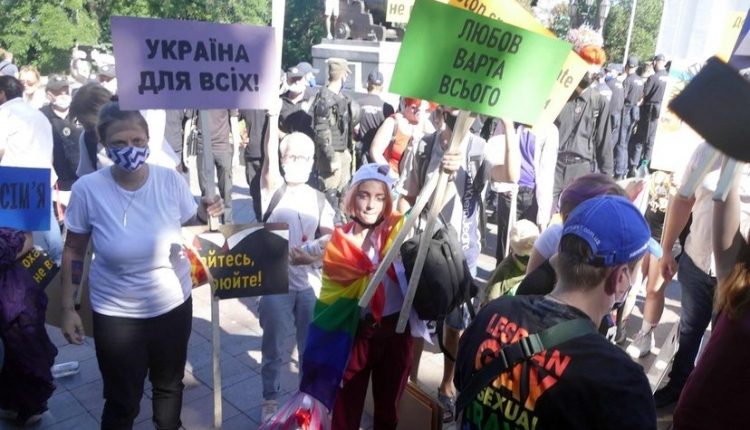
On the 30th of August, Odesa Pride tried to hold a peaceful gathering on one of the central streets of Odesa, Ukraine. Despite the fact that the group Tradition and Order were issuing threats before the event and came prepared to the gathering, where they acted violently, the authorities failed to prevent the attacks and ensure the freedom of assembly of the Odesa Pride participants.
The municipal and police authorities had been informed of the event well in advance and they had been specifically requested to protect the members of Odesa Pride against foreseeable protests by nationalist group. The nationalist group Tradition and Order issued several threats against the event and declared a counter demonstration. Ukrainian local authorities thus knew the risks surrounding the event, and they had been asked to provide heightened protection to participants of Odesa Pride. However, only a limited number of police officers were initially deployed and they allowed the aggression of Tradition and Order to develop into physical violence against participants of the Pride. Several participants were pepper-sprayed and attacked with corrosive substances: one person received 1st degree burns, another person received severe head injuries.
Ukraine, as a signatory of international and regional human rights treaties, member of the Council of Europe and under the Partnership and Cooperation Agreement with the European Union and under own Constitution, has an obligation to protect participants of peaceful demonstrations and prevent any attempts to unlawfully disrupt or inhibit the effective enjoyment of right to freedom of expression and peaceful assembly of all people, including LGBTI people.
Given the fact that hate crimes against LGBTI people are investigated ineffectively, offenders often avoid responsibility or charged with petty crimes and motives of intolerance on grounds of sexual orientation, gender identity, gender expression and sex characteristics are often ignored in Ukraine, ILGA-Europe are concerned that the Ukrainian authorities will fail to conduct a proper investigation of Odesa Pride attacks and inadequate response of the police to the event as they failed to investigate attacks of Pride events and failure of police to protect the events in previous years.
ILGA-Europe calls on the European Union and Council of Europe to hold the Ukrainian authorities accountable to the human rights obligations they have committed to as part of the EU-Ukraine Association Agreement and member of the Council of Europe.
ILGA-Europe calls on the EU and Council of Europe to:
- Remind Ukraine of its obligations and duties under domestic law and international human rights law to respect, guarantee, protect and fulfil fundamental rights without discrimination
- Urge Ukraine to conduct a proper investigation of allegations of victims of attacks during the Odesa Pride and launch a comprehensive and meaningful inquiry into the circumstances and bring all perpetrators of hate crimes to justice and ensure effective remedy for victims, including compensation.
- Ensure non-repetition of such incidents and urge the respective authorities to provide well-trained, efficient and sufficient police protection to human rights defenders and Pride attendees, so as to ensure that their respect to peaceful assembly can be effectively enjoyed
- Urge Ukraine to adopt legislation on hate crimes that is motivated by sexual orientation, gender identity, gender expression and sex characteristics or other minority status;
Background information
Preparation
In August, Odesa Pride organisers – Gay Alliance Odesa – held several preparatory meetings with the police to consult them on safety of the event. During these consultations, the police was provided with a final list of all events to be held during the Odesa Pride: format, location, time, and degree of openness. Police suggested live chain format to ensure safety of members of the event and suggested location for the event. Pride organisers agreed to all suggestions of the police.
On August 20, after consultation with the police, the EUAM and a representative of the Ombudsman Institute, organiser sent official notification to the City Hall and the police that Odesa Pride will held on August 29, 2020. At the same day, police contacted organisers and suggested to reschedule the event on August 30 and this proposal was supported by the Gay Alliance Odesa.
On August 25, organisers met with contact persons from the Dialogue Police, the Department of Preventive Work and Street Activities, as well as representatives of the EUAM at the chose location for the Odesa Pride. At the meeting, organisers informed police about threats by nationalist group – Tradition and Order. Police informed organisers that they are aware of threats and monitoring the situation.
On August 28, organisers held final consultation with police. Threats, provocations, possible disruptions and strategies of counter actions were discussed during the meeting. Police informed organisers that they are still monitoring the situation and contacted counter demonstrators and received assurance from organisers of the counter demonstration that no attacks are planned.
Odesa Pride and attacks
In the morning of August 30, around 11.00 a.m., prior to the start of the Odesa Pride, organisers called police to confirm location and safety of the situation. Upon arrival, around 14.00, Odesa Pride organisers found out that agreed location was occupied by counter demonstrators – Traditional and Order. Police had made no attempts to vacate the agreed location for the event. Police insisted on relocation of the Odesa Pride as agreed location was occupied by Tradition and Order.
At 14:40, after negotiations between police and organisers of the Odesa Pride, Odesa Pride was relocated to Dumskaya Square to ensure safety of all participants of the Pride event. After 15 minutes, counter demonstrators followed the Pride participants to Dumskaya Square. Police did not make any attempts to draw live chain between the parties despite aggression and threats of counter demonstrators.
After 10 minutes of counter demonstrators’ arrival, they started attacking participants of the Odesa Pride and police failed to react to these attacks: no arrests were made. After first wave of attacks, police surrounded participants of the Odesa Pride to shield them from attacks but some participants were left outside of the circle and continued being under attack of counter demonstrators.
In next 10 minutes, Tradition and Order members attacked the police. Police began to react to the surrounding events and clashes broke out between Tradition and Order and police, during which one police officer was seriously injured. Police started arresting some members of Tradition and Order.
During next 1.5 hour, a group of about 30 activists surrounded by police were continuously attacked by counter demonstrators: pepper spray, blows with sticks, bottles and other objects (paint, eggs, stones, sticks, water bottles) had been thrown at them by members of Tradition and Order. These attacks were accompanied by insults and threats of violence and murder.
After 1.5 hours, participants of the Odesa Pride were securely removed from the Dumskaya Square by the police.
 Share our video & film your own about what Pride means to you
Share our video & film your own about what Pride means to you 